
Université Côte d’Azur commitments towards the Sustainable Development Goals REPORT FOR 2024


Université Côte d’Azur commitments towards the Sustainable Development Goals REPORT FOR 2024

In 2024, universities worldwide continue to face both the promise and responsibility of shaping a sustainable future, a mission highlighted by the 235 million students globally whose education and empowerment rely on the knowledge we cultivate, teach, and apply in partnership with society.
Now more than ever, universities are not only advancing knowledge but are positioned as key catalysts for transformative change through the Sustainable Development Goals (SDGs). This responsibility compels us to extend our impact beyond academic boundaries and into diverse ecosystems, where the alignment of science, policy, and societal engagement becomes essential for meaningful global progress.
At Université Côte d’Azur, the commitment to SDGs has prompted structural and strategic evolution, ensuring that sustainability is deeply integrated into every facet of university life. Indeed, as presented in the first edition of the SDG report, this transformation is not merely aspirational; it reflects our dedication to fostering interdisciplinary research, promoting inclusive knowledge systems, and building stronger societal partnerships.
In this pivotal moment, we recognize that impactful innovation must be grounded in robust science, requiring not only intellectual dedication but also the patience, resources, and resilience needed to forge sustainable solutions. The urgency of the SDGs is matched by a responsibility to advance solutions that are ethically sound and capable of driving long-term societal benefits.
In this third edition of the Université Côte d’Azur Sustainable Development Goals report, we present the strides taken by Université Côte d’Azur in 2024 as we align with the SDGs, remaining steadfast in our commitment to global sustainability and the future we are collectively building.
We also present the evolution of the key performance indicators initially introduced in 2022, offering a comprehensive view of our progress over the past year. These indicators serve as benchmarks, reflecting how Université Côte d’Azur’s efforts have developed to address each SDG and highlighting areas where we have strengthened our impact. Tracking these metrics over time enables us to assess both successes and areas for growth, ensuring that our strategies remain responsive to the complex, dynamic challenges of sustainable development.
This continuity allows us to celebrate meaningful milestones, refine our approaches, and uphold a transparent commitment to accountability as we advance toward a sustainable future.

The Sustainable Development and Social Responsibility Master Plan (SD DD&RSE) is fully aligned with Université Côte d’Azur’s commitment to the United Nations Sustainable Development Goals (SDGs). This five-year strategic framework (2024–2029) serves as a roadmap to coordinate and amplify the university’s actions in environmental, social, and societal transitions.
Designed as a tool for coherence and strategic coordination, the SD DD&RSE strengthens Université Côte d’Azur’s contribution to addressing the environmental and social challenges of our time. It builds on the transformation process initiated in 2020 within the framework of the Grand Établissement project, and reinforces the university’s ambition to act as a driving force in shaping a sustainable and inclusive society.
The SD DD&RSE is a collective project that mobilizes the entire university community — students, staff, researchers, and institutional and economic partners. As a ‘master plan of master plans’, it connects with other strategic frameworks already in place within Université Côte d’Azur:
• Human Resources Master Plan (SD RH): focusing on quality of work life and professional development.
• Student Life Master Plan (SD VE): enhancing student well-being and academic success.
• Disability Master Plan (SD H): promoting inclusion and accessibility.
• Gender Equality Action Plan: advancing professional equality and preventing discrimination.
This integrated approach ensures greater coherence across university strategies and amplifies the overall impact on sustainability and social responsibility.
Implementation of the SD DD&RSE is steered at the highest level through the Vice Presidency for Environmental and Societal Transitions (VP TES). This governance model reflects Université Côte d’Azur’s determination to integrate sustainability into all its core missions — education, research, innovation, and campus life — while ensuring transversal coordination among all governing bodies and departments.
The SD DD&RSE is structured around five strategic axes that express the university’s ambitions and guide concrete action from 2024 to 2029:
Axis 1: Strategy and Governance
• Strengthen governance and steering capacities
• Foster a sense of self-determination within the community and promote participation and consultation
• Drive behavioral change towards more responsible practices
Axis 2: Teaching and Training
• Ensure comprehensive education on sustainability and transition issues
• Support and encourage the teaching community
• Build a strong and engaged academic community on sustainability topics
Axis 3: Research and Innovation
• Commit to responsible research
• Support and stimulate the research community
Axis 4: Environment
• Enhance diagnostics for a comprehensive understanding of our current environmental status
• Develop environmentally friendly approaches
• Foster the emergence of new practices
Axis 5: Social Responsibility and Quality of University Life
• Promote sustainable health and well-being across the university community
• Strengthen inclusion, equal opportunities, and the fight against discrimination
• Enhance societal engagement by fostering stakeholder participation
Developed for a five-year period (2024–2029), the SD DD&RSE is a living and adaptable framework:
• Annual monitoring will assess the progress of actions through a performance dashboard shared with governance bodies.
• Periodic updates will allow integration of new initiatives and adjustment of priorities based on community feedback.
• Successive revisions will foster an ever-broader, co-constructed approach involving all stakeholders.
The SD DD&RSE adopts a systemic and integrated vision of environmental and societal transitions, in line with:
• National frameworks such as the National Low-Carbon Strategy, Biodiversity Plan, and the State’s Ecological Transformation Plans;
• International frameworks, particularly the 17 United Nations Sustainable Development Goals (SDGs), which serve as the guiding principles for the entire process.
Thus, Université Côte d’Azur’s Sustainable Development and Social Responsibility Master Plan (2024–2029) embodies a clear ambition: to act collectively for an exemplary, inclusive, responsible, and sustainable university that serves its territory and future generations.
No Boundaries to Knowledge: Increasing Accessibility and Openness of Our Infrastructures
Research and Innovation for Urban Development and Quality of Life in the City
Rethinking our relationship to education, social life, consumption, and our ways of living
Very first collaborative workshop from the academic community aimed at developing scenarios to reduce the carbon footprint of research laboratories.
Université Côte d’Azur committed to support for behavior change towards more sustainable consumption patterns. 76
Symposium on Ecological Transition and Sustainable and Responsible Consumption 77
It’s a wrap for the Ecological Transition and Sustainable and Responsible Consumption project!
A strong commitment highlighted by the press
The Academy 3 “Space, Environment, Risks and Resilience” is pleased to share with you the 2024 edition of the Green Book! �����������������������������������������������������������������������������79
Live from COP: our faculty members break down what’s really happening inside the Conference! 80
Université Côte d’Azur partners with the IPCC, WMO and Cortes Solari for Climate Action!
Enhancing and enabling climate solutions with higher education to the UNFCCC
From local to global: Université Côte d’Azur organizes the second edition of its Mirror COP!
Université Côte d’Azur represented U7+ at the annual Network of Networks of Universities for Climate Change
Presence in Bonn for the UNFCCC Climate Conference
A researcher of Université Côte d’Azur presented the climate recommendations of the Local High Council to the Nice Côte d’Azur Metropolitan Council. 83 100% of UniCA bachelor students trained on ecological transition
and
The UNESCO Chair Peace and Development through Law organized an exceptional conference dedicated to Combating Conflict-Related Sexual Violence: Normative Frameworks and Operational Action 94
A highly productive year for the Institute for Peace and Development and the LADIE 94 The 2024 EMOJIE summer school 95
Closing chapter for the Jean Monnet Chair on the European Union and Crisis Management
A major milestone for Université Côte d’Azur: the election of the Scientific and Pedagogical Councils (CoSP) of its eight Graduate Schools 96
17 Partnerships for the goals
First results following the implementation of policy to support international collaboration capturing data related to SDGs. 97
Université Côte d’Azur committed to cross sectoral dialogue about SDGs with the initiative «On the road to COP”
Université Côte d’Azur first year as U7+ Secretariat, G7 informal engagement group for universities 100


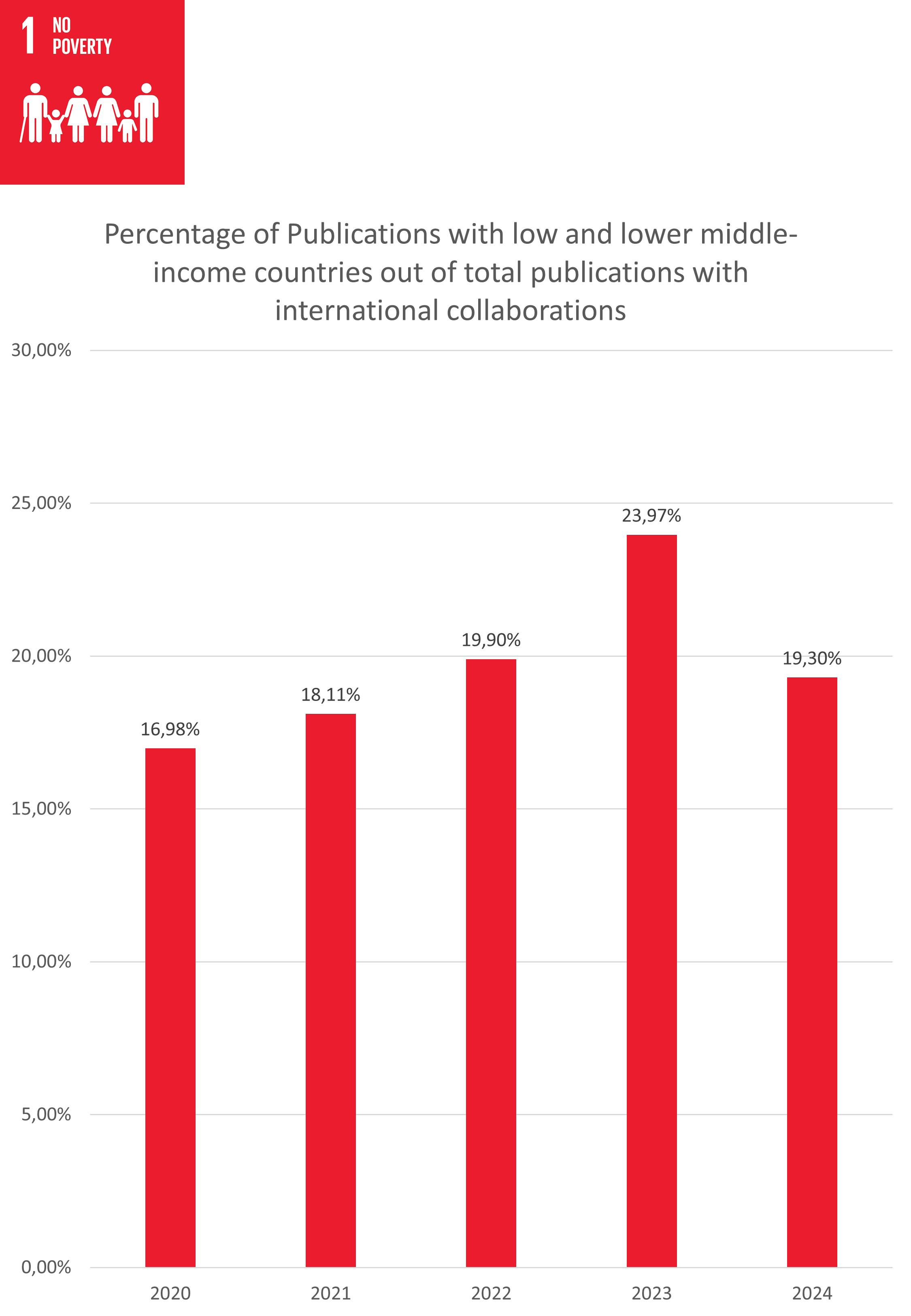
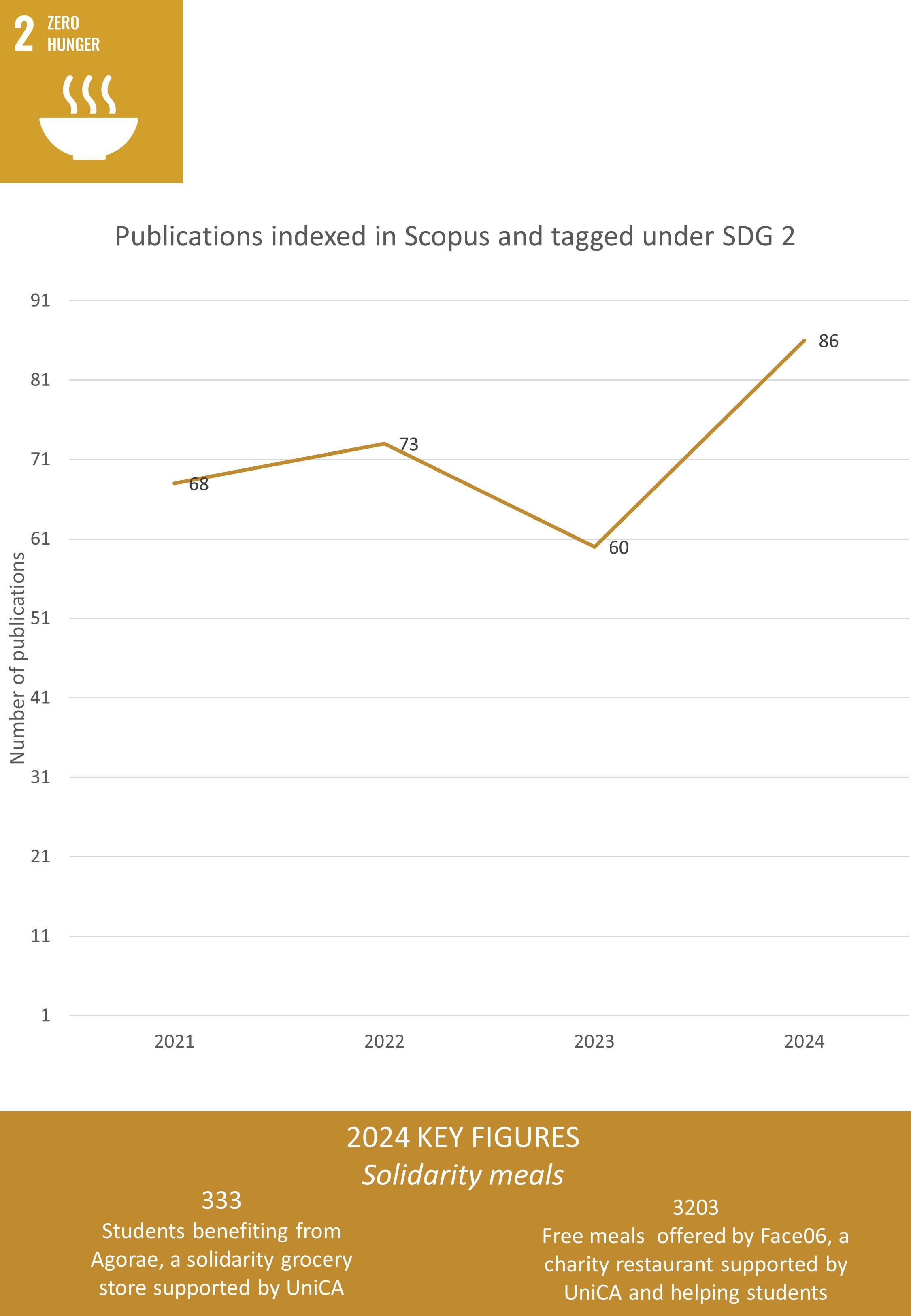

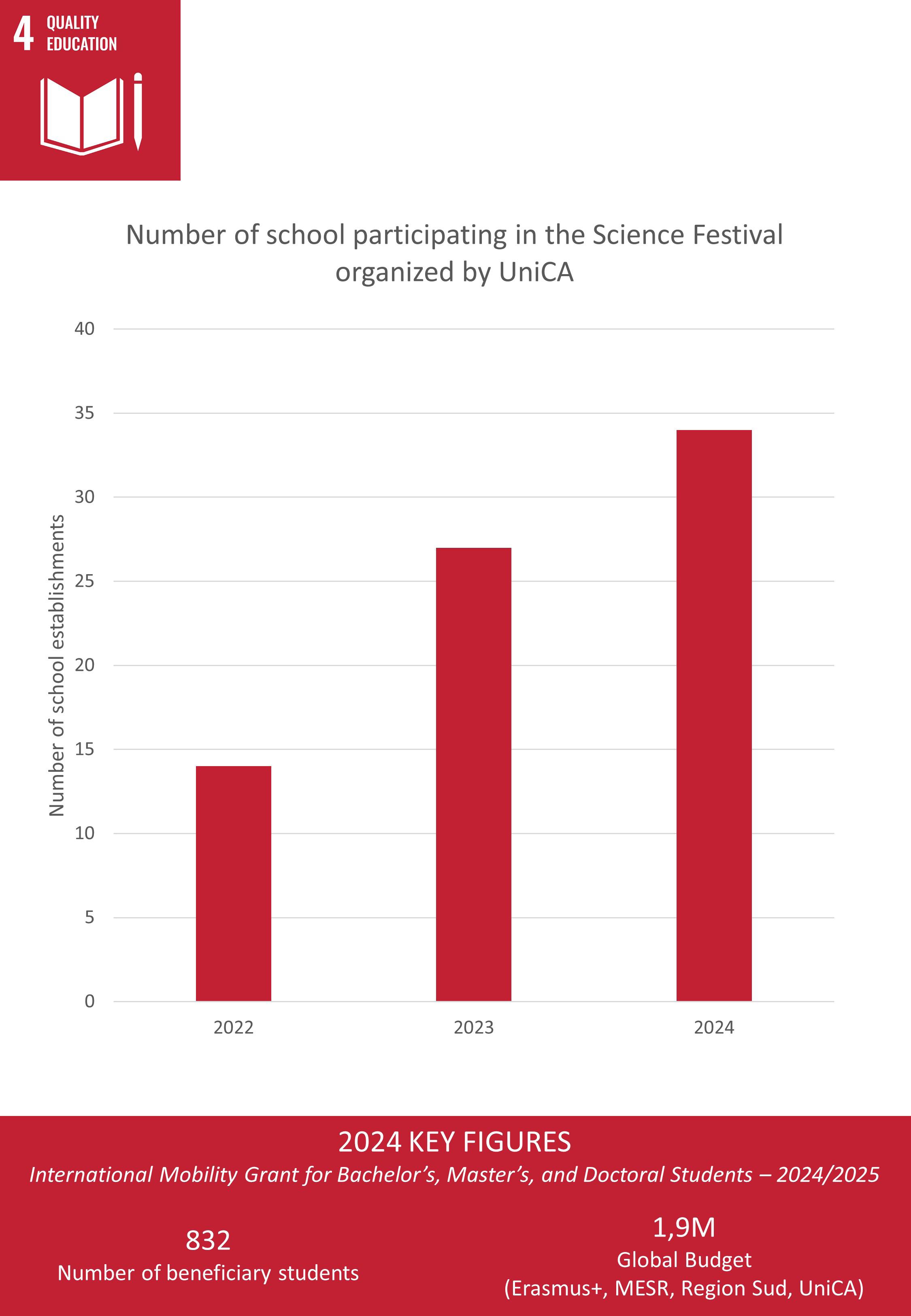
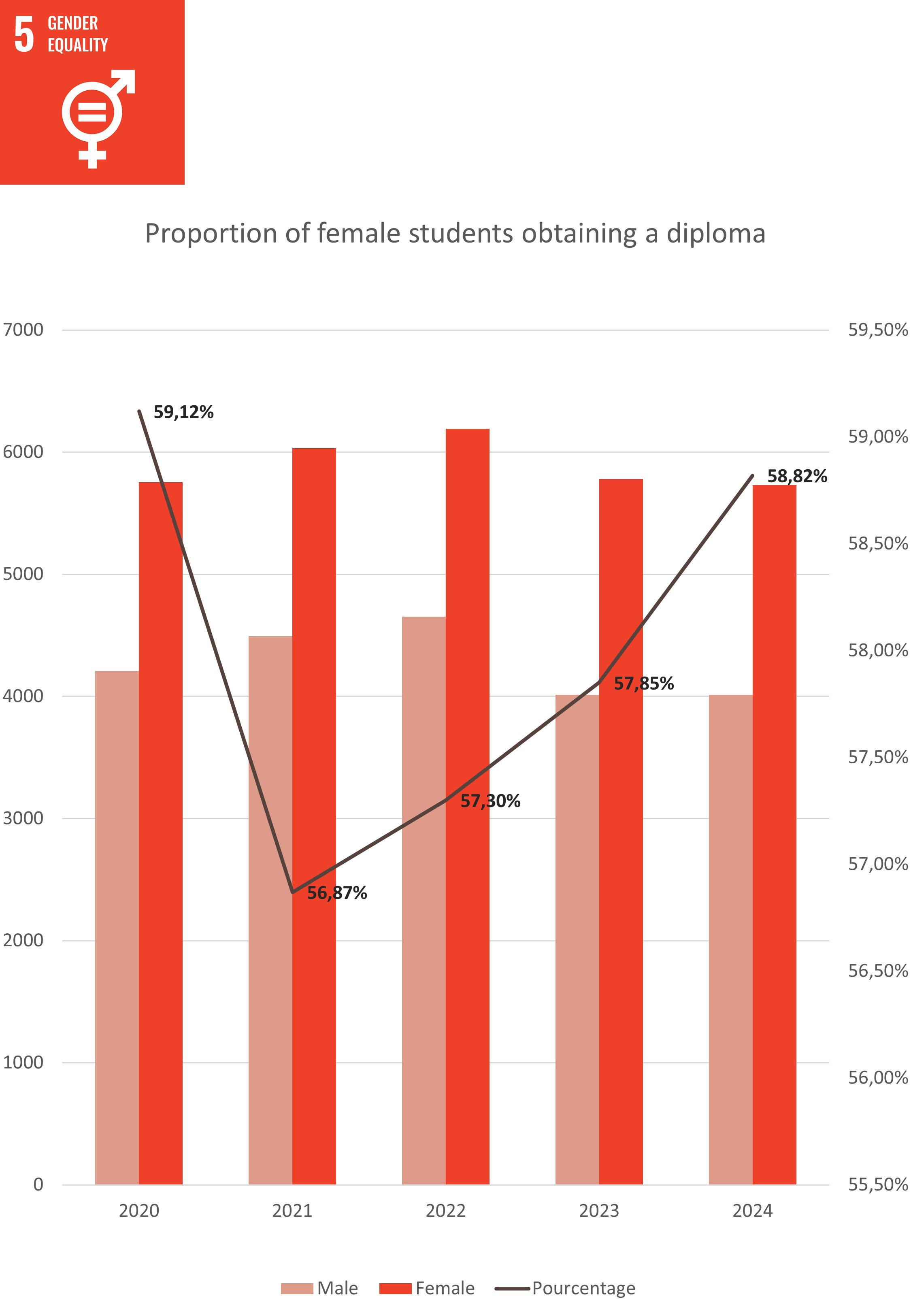

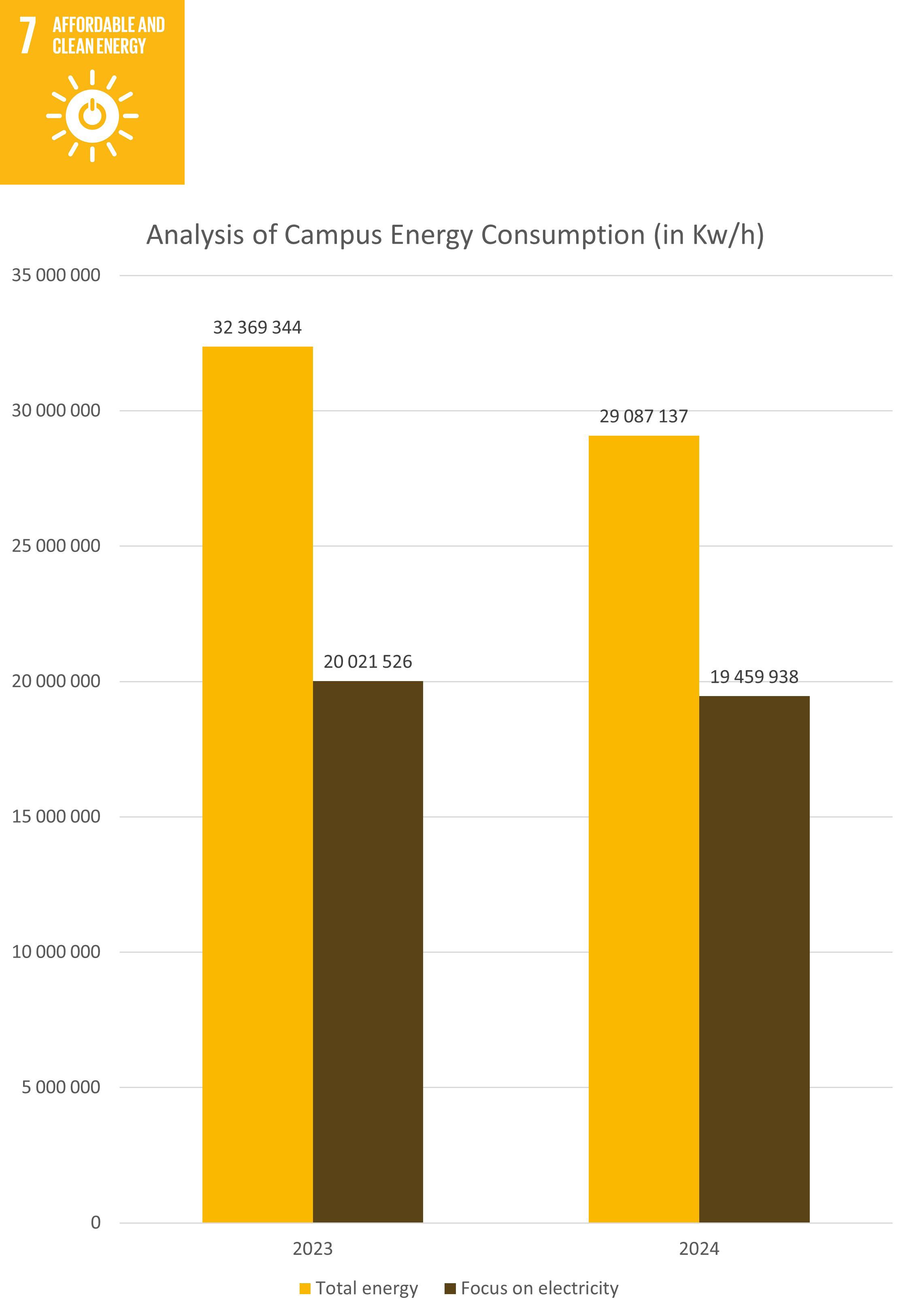
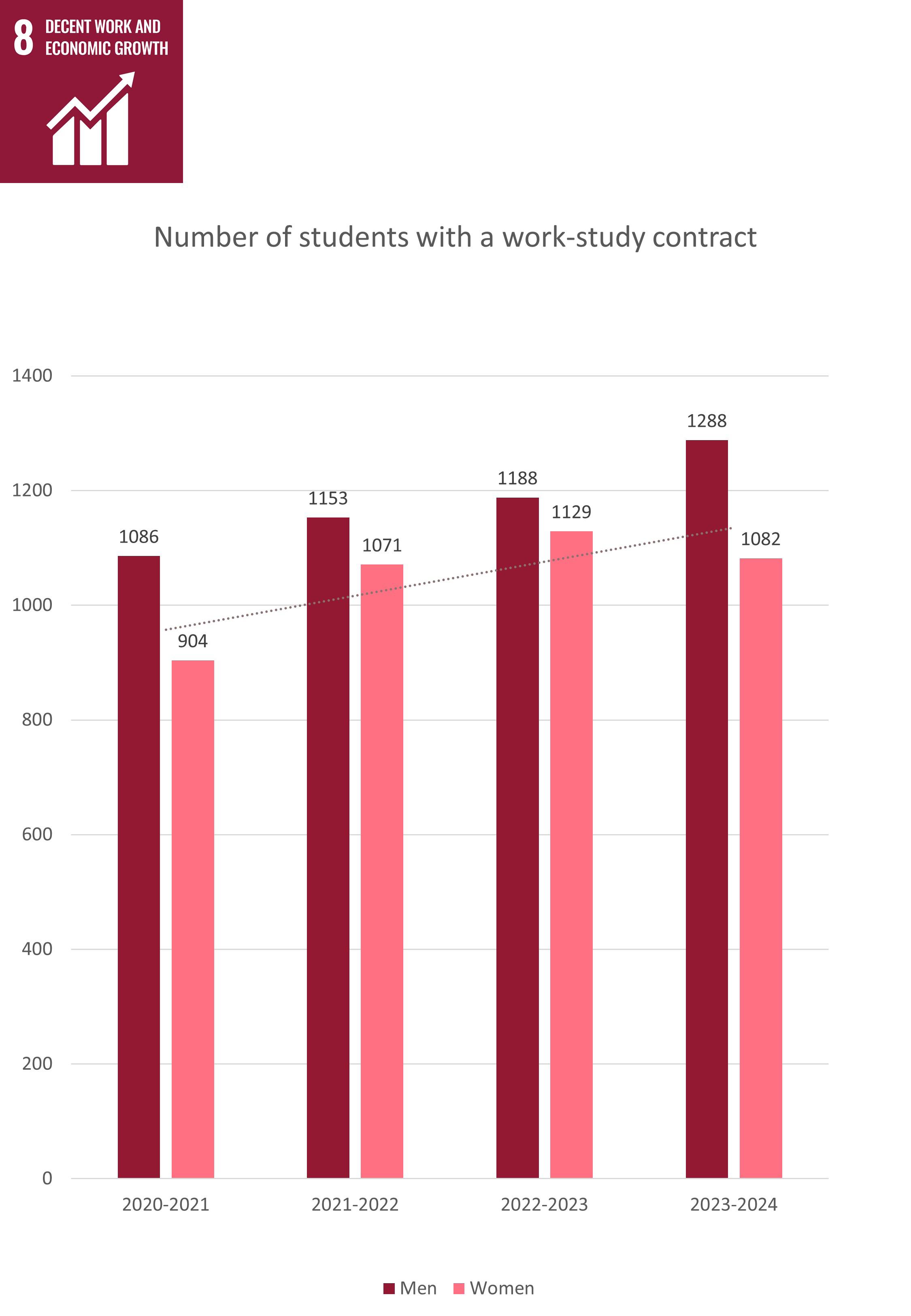
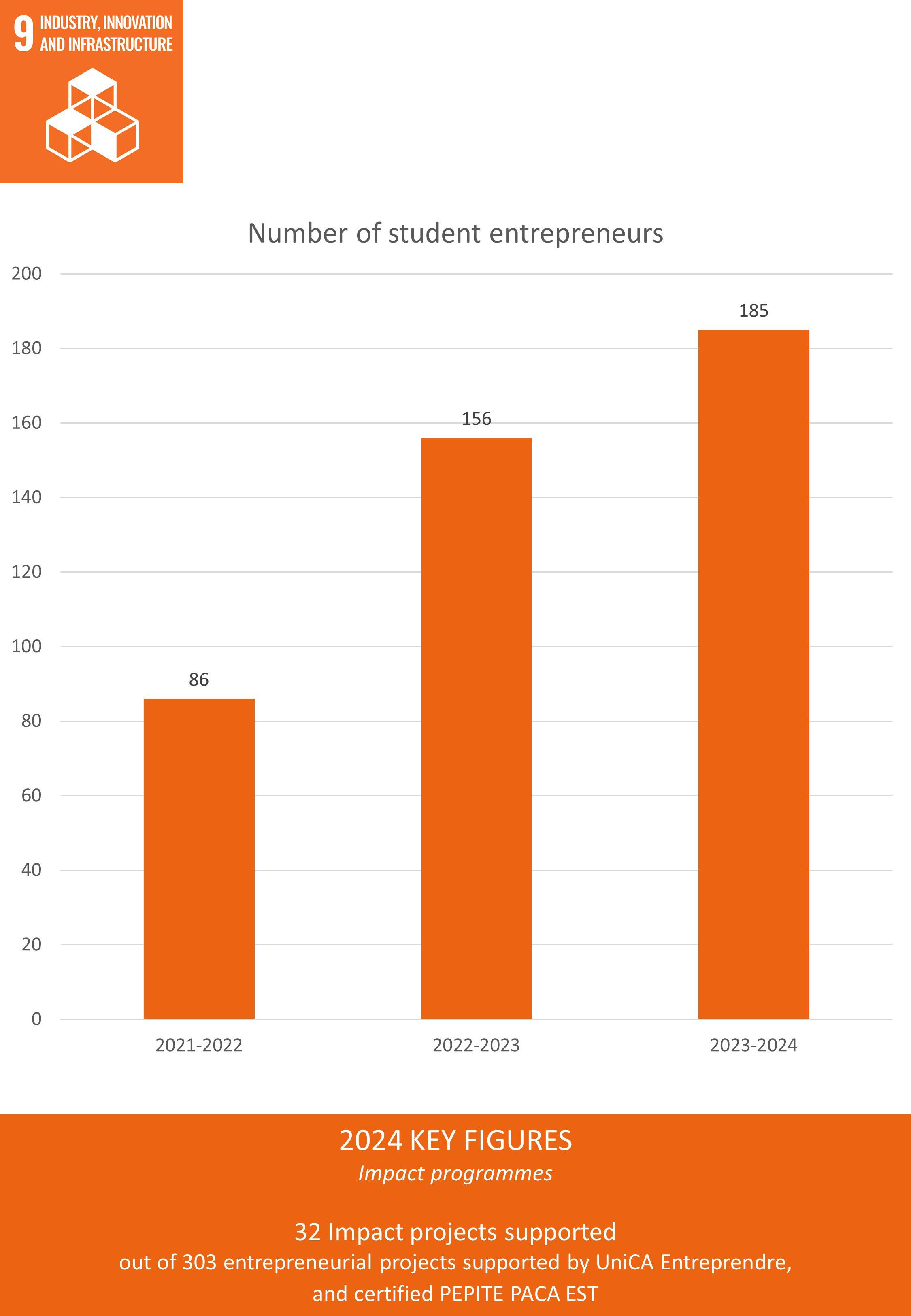
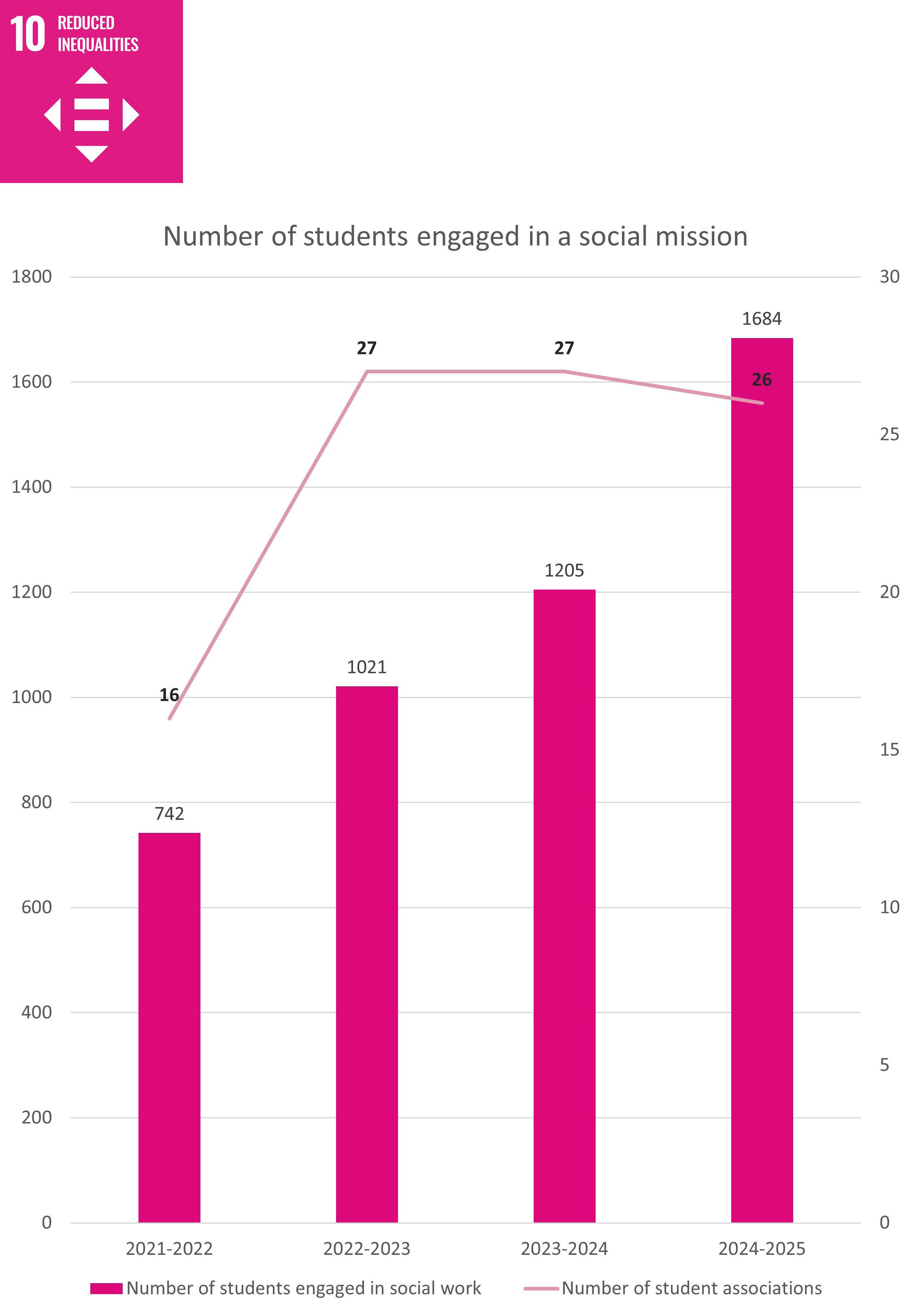
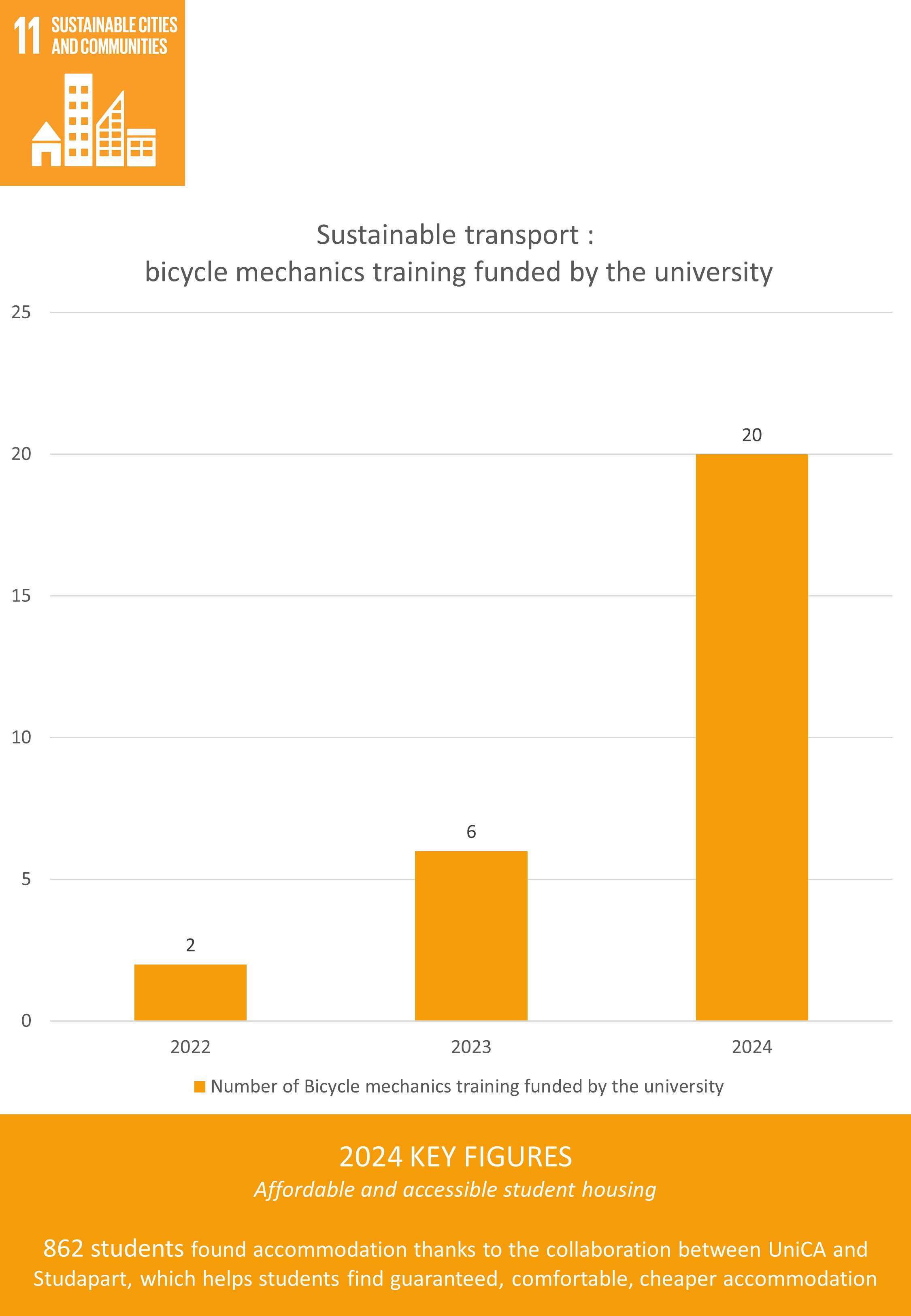


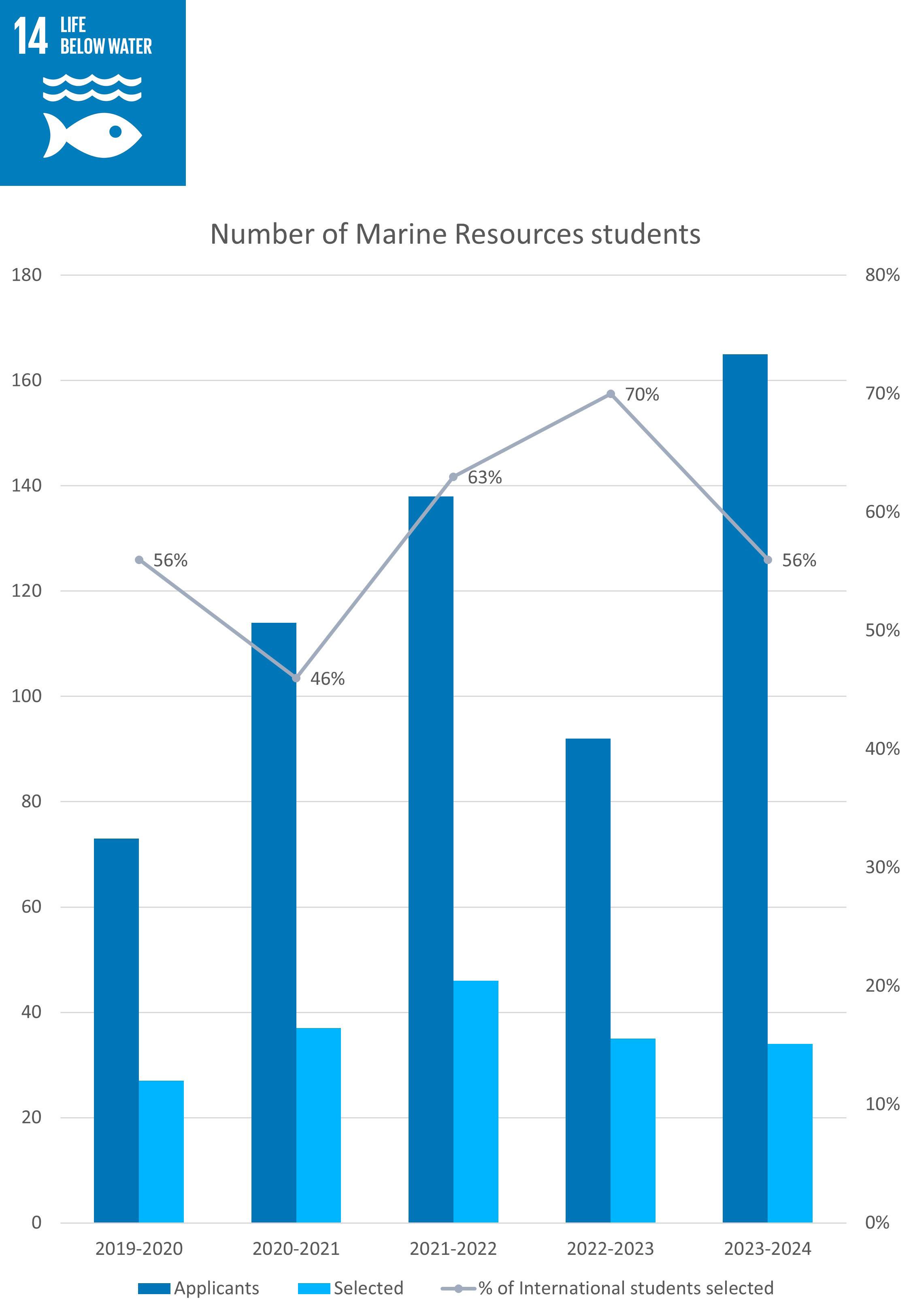
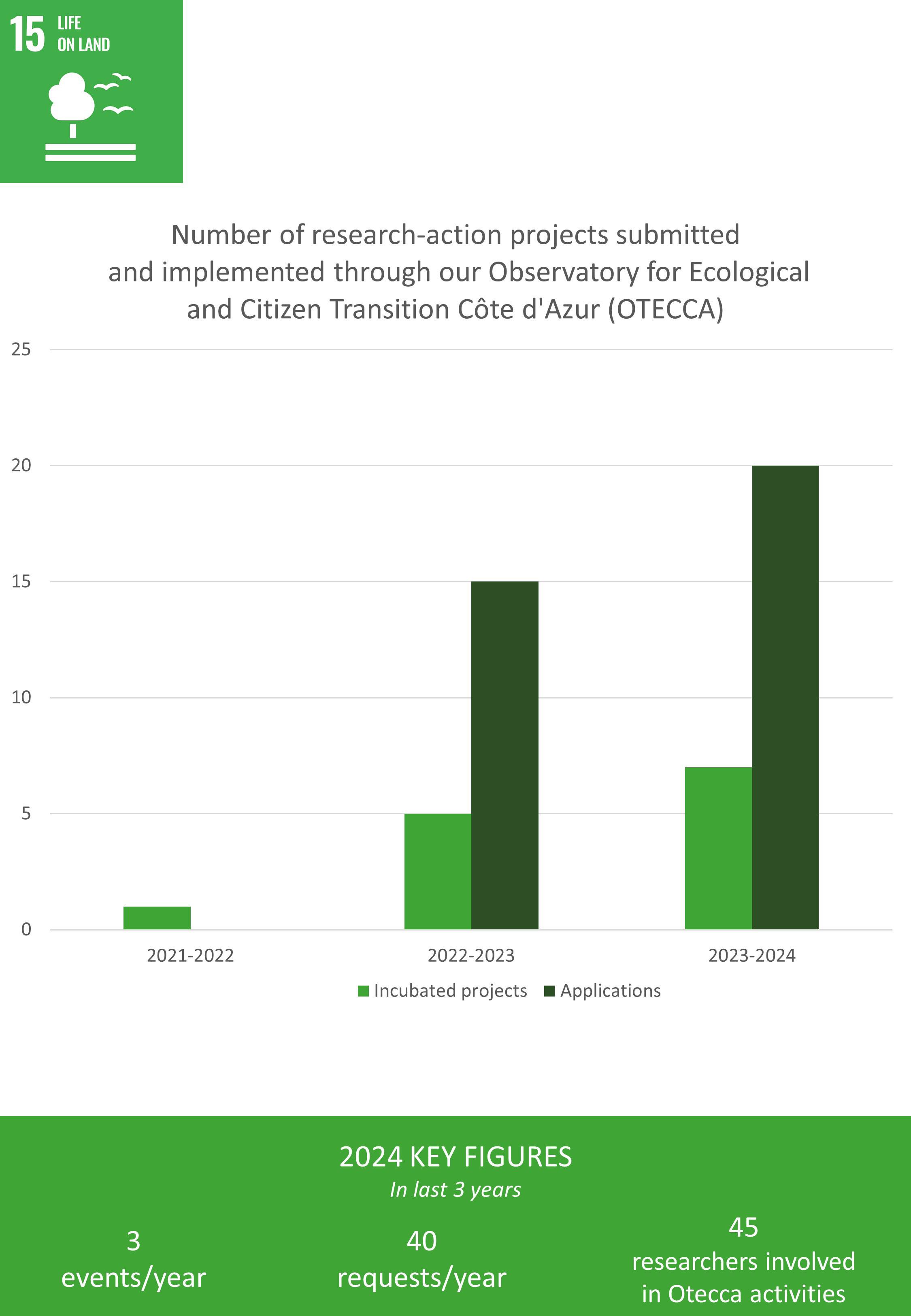
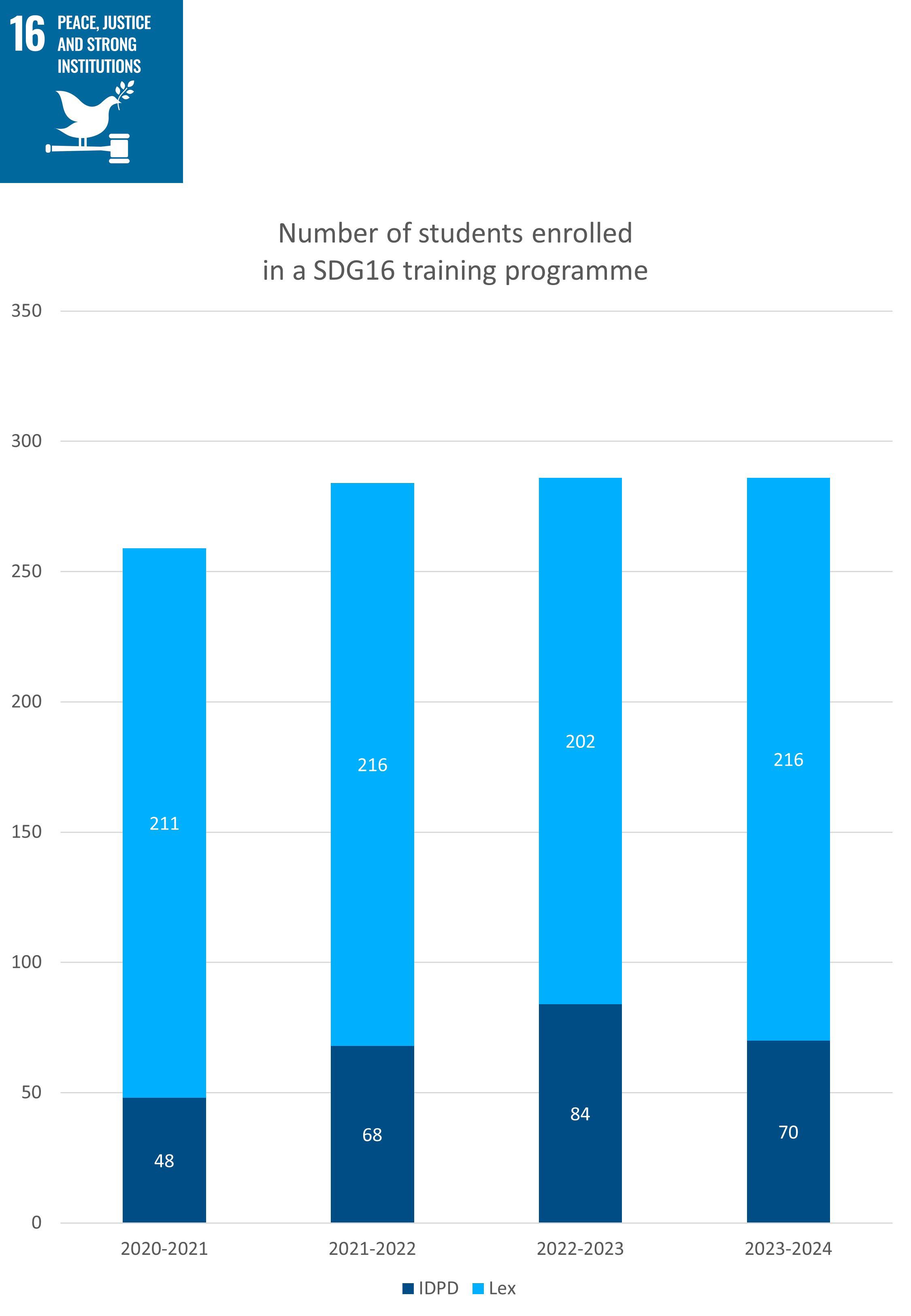
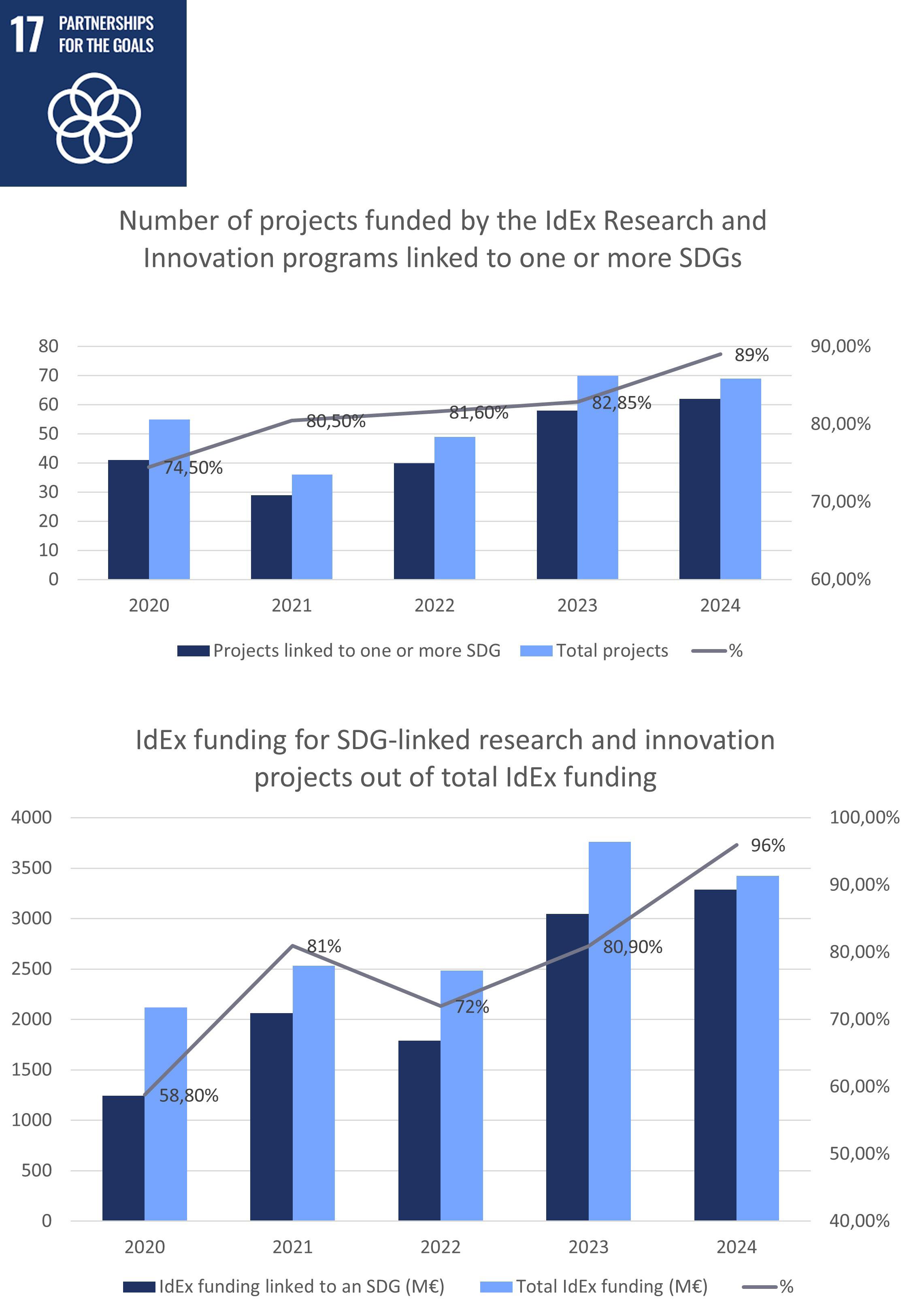
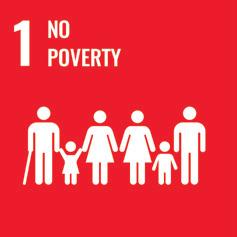
Supporting students with Social and Excellence Scholarship program
Supporting students with Social and Excellence Scholarship programs Université Côte d’Azur keeps developing its scholarship programs for French and international students, based on social criteria and excellence.
One of the programs funded and implemented by Université Côte d’Azur and the Initiative of Excellence (IDEX) is the Champions scholarship program, addressed to beneficiaries based on social criteria. They receive a stipend for 4 years from their Bachelor’s degree second year to the end of their Master’s degree if they respect all criteria during that time. In 2024, 17 students received this scholarship, for a total cost of 68.000€.
In addition, Université Côte d’Azur awarded 9 IdEx scholarships (45.000€) to the best MSc candidates, and 22 IdEx mobility scholarships (15.000€). The Junior scholarships were granted in 2024 to 24 high school students, for a total amount of 48.000€.
In total, 72 students benefited from these excellence scholarship programs, for a total cost of 176.000€.
Furthermore, students also have access to the Equal Opportunities Scholarship, a financial support granted only once during the university course. The selected university students with social, medical or disability problems receive a total of 1000 euros. The criteria for obtaining this support are as follows:
• to have succeeded the previous year with a good average, • to be facing social, medical, or disability challenges.
Many students received a scholarship to support them in the internationalization of their university experience with the Erasmus + scholarship program. In 2024, 504 mobilities were financed thanks to this program, for a total amount of 1.492.959,00€. Amongst them, 216 were for supporting traineeships (SMT). 288 scholarships funded Study mobilities (SMS).
Opportunities provided by the IdEx Program Europe and International
As part of its International and Europe IdEx program and in addition to the scholarships previously mentioned, Université Côte d’Azur offers each year a range of scholarships and international opportunities designed to foster student and doctoral engagement in global scientific, policy, and sustainability initiatives. In 2024, five students from Polytech Sophia took part in an international Hackathon at the Wilkes Center for Climate Science & Policy at the University of Utah, focusing on innovative solutions for climate resilience. Two students from Université Côte d’Azur took part in a UN simulation exercise focused on the negotiation of the BBNJ Agreements , organized by the University with the support of the Agence Universitaire de la Francophonie in Brussels. The university also supports participation in the U7+ Student Forum, an online global dialogue among students from member universities of the U7+ Alliance, discussing global challenges and youth engagement.
Through the IdEx Lindau Scholarship, Université Côte d’Azur enables doctoral and master’s students to attend the prestigious Lindau Nobel Laureate Meetings , which bring together over 30 Nobel Prize winners and 500 young researchers each summer in Lindau; 3 students from Université Côte d’Azur participated in 2024 with the support of the International and Europe IdEx Program. Finally, the program also funds student and doctoral participation in the UNFCCC Climate Change Conference (SB sessions) held annually in Bonn, which serves as a preparatory meeting for the COP — with 3 Université Côte d’Azur students attending in 2024.
Overall, these initiatives totally funded by the International and Europe IdEx Program cost 70.000€.
UniCA Junior Jedi program , targeting middle schools in priority areas, have been signed with four local schools. This program brings together between 40 and 60 middle school students, engaging them in a variety of activities (on Wednesdays and in school holidays) such as laboratory experiments, meetings with university students, campus visits and interactions with researchers. The aim is to proactively prepare them and give them opportunities to become familiar with higher education and ultimately to enroll.
The UniCA Junior Jedi project, specially designed for high school students, included in 2024 24 high school students. This project aims to stimulate their academic potential and guide them in their career choices by offering them a mentoring and personal development program during school holidays and on Wednesdays.
UniCA Champion Jedi is an initiative designed to support promising students in difficult socio-economic situations, by awarding them a scholarship for the duration of their studies at Université Côte d’Azur. In 2024, 17 students received this scholarship, for a total cost of 68.000€.
UniCA Entreprendre is Université Côte d’Azur’s center for entrepreneurship education and support. It is part of the project Pépite Paca-Est, one of the 31 national Pépite centers in France, a center of expertise and resources for entrepreneurship and innovation, aimed at local students, researchers and professionals. UniCA Entreprendre’s role is to inform, raise awareness, train and support students, PhD students and entrepreneurial researchers in their entrepreneurial adventure. To this end, the center brings together all the existing facilities at the university and in the local ecosystem, as well as organizing events, training workshops and support programs.
Coordinated by Université Côte d’Azur and Université de Toulon, Pépite PacaEst connects over 15 higher education institutions and a broad ecosystem of regional innovation actors. Its close ties with research laboratories, centers of excellence, and local enterprises create a fertile environment for innovation and business creation.
Whether students are at the idea stage, developing a prototype, or already engaging their first clients, Pépite Paca-Est — certified by Pépite France — provides customized support and access to France’s largest community of young entrepreneurs
Each year, UniCA Entreprendre supports hundreds of entrepreneurial projects through four programs adapted to different levels of maturity. In 2024-2025, 303 student projects were supported (it was 280 the previous academic year), including 32 identified as “High Impact Projects”. Almost 6000 students and researchers (5984) were sensitized to sustainable entrepreneurship in 71 events throughout the year.
Specific workshops on “how to create an impact” and sensitization to sustainability and climate change are mandatory to all student entrepreneurs.
Access to affordable and decent housing remains a significant challenge in a touristic region such as the French Riviera, where Nice ranks as the most expensive city in France after Paris. Aware of this situation, Université Côte d’Azur is intensifying its efforts to promote partnerships with local authorities (the city of Nice, the Alpes-Maritimes department and the Region ProvenceAlpes-Côte d’Azur), socio-economic actors, and the associative network (Face06, Habitat06,…) to support students in their search for decent housing.
In partnership with the Afev (Student Foundation for the City), Université Côte d’Azur promotes affordable shared housing opportunities for students and young people under 30 in Nice and Cannes. The concept is simple: residents live together in a popular neighborhood and dedicate about five hours per week to a local solidarity project — supporting children with schoolwork, participating in community life, or organizing social and cultural activities. AFEV provides guidance and support throughout this enriching experience, helping students engage meaningfully in their community.
Université Côte d’Azur supports intergenerational housing initiatives, in partnership with associations such as Toit en Tandem, Ensemble 2 Générations, and Habitat et Humanisme, which offer affordable housing options fostering solidarity between generations.
In addition, the university collaborates closely with CROUS, CAF, and the Studapart platform to facilitate access to both public and private housing options — including university residences, private rentals, and shared accommodations — depending on students’ financial situation. French state housing aid, such as APL, ALF, and ALS, is also available to eligible students. Through these coordinated initiatives, Université Côte d’Azur reaffirms its strong commitment to ensuring that all students can study and thrive under dignified living conditions despite the housing pressures of a competitive regional market.
Between April 1 and September 30, 2024, a total of 3,873 students registered on the Studapart housing platform, marking a 3% increase compared to 2023.
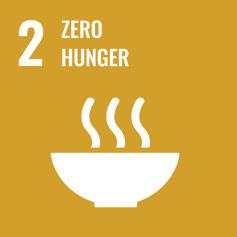
On 2024, March 4, Université Côte d’Azur inaugurated a “ Solidarity Fridge and Pantry ” on the Georges Méliès campus in Cannes, providing free access to fresh produce, dry goods, hygiene products, and fruits and vegetables for students in need.
This initiative, launched by the City of Cannes, brings together nine partners: the City of Cannes, Les Frigos Solidaires, the CCAS, CROUS, Cannes Pays de Lérins, Université Côte d’Azur, and three student associations (CREATES, IUT, ESRA). The project aims to combat food insecurity, reduce food waste, and foster social inclusion. Only the CCAS and CROUS are authorized to supply the fridge, ensuring food safety and traceability.
Student associations play a central role in the project’s daily management— ensuring hygiene and food compliance, maintaining records, and monitoring equipment. Students can easily access the service via an online form and QR code. A great example of campus solidarity among students, this initiative not only helps fight hunger but also contributes to reducing food waste and strengthening the sense of community at Université Côte d’Azur.
A partnership with the CROUS to fight against food precarity

Université Côte d’Azur, together with Crous Nice-Toulon, actively fights hunger and student poverty on its campuses by managing 9 university restaurants and 12 fast food points, providing over 4,740 dining places across the Alpes-Maritimes and Var regions. Any student enrolled in higher education can have access to these services.
Cheap meal options are proposed to all (starting at €4) and include balanced options such as complete meals with a variety of dishes. For students in need of further support, such as students with social scholarship or who experience financial hardship, meals are available for €1. Additionally, the university offers social aid commissions that can provide financial or food assistance, facilitated by social workers.
The ACROPICS project , launched as part of the Horizon Europe program, plays a key role in supporting Sustainable Development Goal 2 – Zero Hunger, by promoting resilient and sustainable agricultural systems worldwide. Led by a consortium of 15 organizations, including Université Côte d’Azur, the project combines expertise in biology, ecology, and social sciences to develop 12 Sustainable Agriculture Systems (SAS) across 10 countries.
Between 2023 and 2024, ACROPICS experienced significant growth, with its network of partners strengthening international cooperation and expanding its field initiatives. The project’s first annual joint workshop, held in Zagreb, Croatia (May 21–23, 2024), marked an important milestone, bringing together researchers, farmers, and policymakers to exchange best practices and reinforce collaboration between the ACPI and ACROPICS communities.
By fostering co-innovation and engaging local and regional stakeholders, ACROPICS contributes to reducing food insecurity, enhancing crop resilience, and promoting agroecological practices that preserve ecosystems. This dynamic evolution underscores the project’s growing impact as a driver of sustainable agricultural transformation and knowledge sharing at the global scale.
As highlighted in the report Sustainable food practices on the Campus, Université Côte d’Azur has made sustainable food systems a central part of its actioncombining education, research, and daily practices to foster a more responsible and resilient approach to food.
Through various on-campus initiatives, such as permaculture gardens and composting programs, the university encourages students and staff to adopt environmentally respectful and pedagogical practices. These actions not only reduce food waste but also help raise awareness about the importance of local, seasonal, and sustainable food consumption.
In terms of governance and policy, Université Côte d’Azur has adopted a Charter for Eco-Responsible Events and promotes sustainable university canteens, ensuring that food services align with ethical and ecological standards. Partnerships with local organizations, including Associations pour le Maintien d’une Agriculture Paysanne (Associations for the Preservation of Small-Scale
Farming AMAP), further strengthen links between the campus and regional producers, fostering short supply chains and fair trade.
At the international level, the Cacao Project, developed in collaboration with the University of Costa Rica, exemplifies UniCA’s commitment to sustainable agriculture and fair production practices. This research partnership supports the development of organic and sustainable cocoa, combining scientific innovation with social responsibility.
In 2024, one of the pioneering projects promoting sustainable agriculture and food resilience supported by OTECCA has come to an end The TEFOR project assessed the territorial food system of western Alpes-Maritimes, co-creating scenarios with local stakeholders, developing a geographic-economic model, and designing a serious game for farmers to support resilient food strategies.
Simultaneously, a participatory research project tested the effects of milk kefir and oxygenated kefir on tomato growth and disease prevention. Led by farmer Nicolas Lassauque in collaboration with ISA/INRAE and UniCA researchers, the study demonstrated kefir’s potential as a low-cost, environmentally friendly solution compatible with organic farming. It gave indications of potential benefits of such practices. Continuing this research would help validate the experimental protocol and explore potential artisanal or industrial applications. It could also contribute to national and European research funding opportunities, with several avenues currently under consideration.
Both projects illustrate OTECCA’s commitment to linking research, local engagement, and sustainable practices, fostering knowledge exchange and practical solutions for resilient and sustainable food systems.
Launch of a Project on Life Cycle Analysis of Territorial Food Initiatives in the Alpes-Maritimes
With the support of the ADEME, the Environment and Energy Management French Agency for Ecological Transition, the Project on Life Cycle Analysis of Territorial Food Initiatives in the Alpes-Maritimes (ACV-PAT) was launched at Université Côte d’Azur. The project (2024–2026) is a post-doctoral participatory action research initiative led by Dr. Andrea Lulovicova (ESPACE laboratory) with the expertise of OTECCA and a consortium of local partners. The project applies Life Cycle Assessment (LCA) coupled with GIS mapping to evaluate the environmental impacts of Territorial Food Projects (PAT) in the Alpes-Maritimes.
Through five participatory workshops, the project co-creates prospective scenarios toward 2050, enabling local authorities and stakeholders to make informed, sustainable decisions in line with France’s Low-Carbon Strategy.
ACV-PAT also organizes internships and applied research activities on topics such as water resources and land use, while presenting results at scientific conferences. The project exemplifies UniCA’s commitment to integrating scientific research, local stakeholder engagement, and practical tools to foster resilient and sustainable regional food systems.
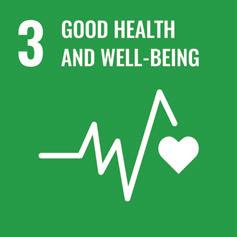
Eco-anxiety, the constant flow of distressing global news, social isolation, financial instability, and mounting pressures regarding both individual and collective futures have significantly undermined the mental well-being of today’s students and young adults.
To help its students face these challenges, Université Côte d’Azur is strongly committed to promoting mental health and well-being for all . Through its University Health Center, the institution offers free psychological consultations and collaborates with the Bureau d’Aide Psychologique Universitaire (BAPU) to ensure accessible mental health care.
Beyond medical support, the university fosters dialogue and community care with initiatives like the “ Cafés Psycho ”, informal gatherings where students and staff can openly discuss mental health challenges over coffee. Additionally, the Mental Health First Aid (PSSM) training program equips students to identify early signs of distress and guide peers toward professional help.
By combining prevention, dialogue, and education, Université Côte d’Azur creates a supportive environment that helps students thrive academically and personally. By doing so, it is also in line with the United Nations’ Sustainable Development Goal 3, which makes health in its broadest sense a key issue for sustainable and healthy development.
Co-organization of the WHO Summer School 2024 on Systems Approaches to Promoting Healthy Lifestyles
From July 16-19, 2024, the WHO European Office for the Prevention and Control of Noncommunicable Diseases, Université Côte d’Azur, and Ulysseus European University hosted a summer school in Nice, France . This three-day course focused on systems thinking and its application in promoting healthy lifestyles, particularly in preventing noncommunicable diseases (NCDs).
This annual event aimed to provide participants—PhD students, early and midcareer professionals, researchers, and policy-makers—with insights into systemsbased approaches that enhance collaboration among diverse stakeholders.
Participants learned to understand systems thinking theory, apply systems approaches for effective collaboration, identify patterns in complex systems, and develop skills to translate research into policy. The training fostered a deeper understanding of how interconnected systems can promote healthier lifestyles and support aging populations.
Launching an innovative project that puts athletes’ well-being at the core of performance.
Still within the field of health, Université Côte d’Azur is advancing innovation through a new partnership between its Institute of Physical Therapy Training (IFMK) and Don Bosco School in Nice . Centered on the idea that athlete performance depends on well-being, the project—supported by the IDISS (Institute for the Development of Student-Athletes’ Interests)—aims to prevent and better manage the health of student-athletes.
Through this collaboration, physiotherapy students will accompany Don Bosco athletes while contributing to research and the development of new monitoring and prevention methods. This promising initiative provides future physiotherapists with exceptional hands-on experience and offers real added value to the health and performance of young athletes.
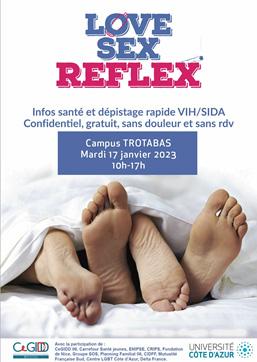
Throughout 2024, the “ Sex on Campus ” Village has been touring the campuses of Université Côte d’Azur, creating monthly opportunities for students and staff to discuss and learn about sexual health in a welcoming and engaging setting. Each stop features stands, workshops, games, and screenings designed to raise awareness and promote healthy behaviors.
The university also provides on-campus gynecological care, offered by general practitioners trained in medical gynecology. These consultations give students easy access to essential services such as first gynecological appointments, contraceptive counseling,
device insertion or removal, STI testing, and pregnancy monitoring—ensuring comprehensive and confidential care.
In addition, free HIV testing is offered during lunch breaks on several campuses. A large awareness campaign, launched under the slogan “Love, Sex, Reflex,” supports the initiative, while student health ambassadors remain active throughout the year to share information about the services available through the University Health Center.
Connecting Students, Researchers, and Experts around health and wellbeing
Health and well-being stand at the heart of Université Côte d’Azur’s mission to foster sustainable, inclusive, and resilient societies. Through research, education, and collaborative events, the University brings together scientists, healthcare professionals, policymakers, and students to address pressing challenges related to physical and mental health, environmental exposure, and healthy ageing. Many projects and events took place in 2024, with only a few of them highlighted below.
In May 2024, the university’s Academy 3 “Spaces, Environment, Risks and Resilience” organized its annual thematic day on “ Exposure & Pollution ”, gathering over seventy participants for an interdisciplinary exchange on the health impacts of environmental pollution. Experts discussed issues ranging from the exposome and food contamination to marine and atmospheric pollution, emphasizing how cross-disciplinary approaches can lead to more effective prevention strategies and public awareness.
Similarly, the roundtable “ Ageing Well Together Through Physical Activity”, held in October 2023, reflected Université Côte d’Azur’s dedication to promoting active and healthy ageing. This event, organized in partnership with the City and Metropolis of Nice, highlighted how adapted physical activity supports both physical and mental health, strengthens social bonds, and helps prevent loss of autonomy. Projects such as Pré.S.Age, co-led by Université Côte d’Azur and the Nice University Hospital (CHU), demonstrate the university’s strong engagement in developing participatory and preventive approaches to public health.
Looking ahead, the Adipo-Cible Winter School 2024, held between December 16 and 19 on the Valrose Campus, focused on obesity and metabolic diseases — major global health challenges. This international training program combined expertise in biomedical research, clinical practice, and artificial intelligence to foster a holistic understanding of these conditions.
The 15th edition of the Brain Awareness Week in Côte d’Azur once again showcased Université Côte d’Azur’s strong commitment to advancing neuroscience research and scientific outreach. This national event, coordinated by the French Neuroscience Society, aims to engage the general public with the latest discoveries in brain research and to highlight the importance of understanding how our brain functions in everyday life. It took place between March 9 and 16 2024.
In the Côte d’Azur region, the event was co-organized by Université Côte d’Azur, CNRS, Inserm, and the Nice University Hospital (CHU), with support from the Région Sud, the Department of Alpes-Maritimes, and several partner cities including Nice, Antibes, Biot, Cannes, Mouans-Sartoux, Valbonne–Sophia Antipolis, and Villeneuve-Loubet. Under the coordination of Carole Rovere (Inserm researcher) and Jacques Noël (Professor, Université Côte d’Azur), both neuroscientists at the Institute of Molecular and Cellular Pharmacology (IPMC, UniCA/CNRS), the event mobilized numerous researchers, engineers, teachers, and students to share scientific advances in neuroscience with audiences of all ages.
This year’s theme, “Brain and Sport,” explored the powerful links between physical activity and brain health. Through a week of lectures, interactive workshops, science cafés, dance performances, and film debates, participants discovered how movement, rhythm, and sport contribute to cognitive stimulation, memory, and emotional well-being.
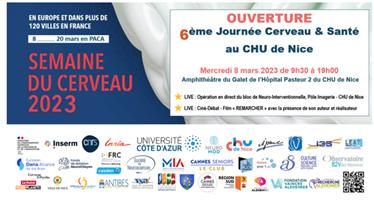
Université Côte d’Azur, member of the Ulysseus European University alliance, presented on June 12 and 13, 2024 its Innovation Hub on Ageing and Wellbeing , bringing together researchers, students, and practitioners to strengthen interdisciplinary research on ageing and well-being. The two-day event included presentations of the Hub (the first one opened in the Alliance) and its Living Lab, highlights of flagship projects such as IHU RespirERA, and Bien Vieillir, as well as a presentation and visit of IRCAN – Institute for Research on Cancer and Aging, Nice. A poster session gave the opportunity to all participants to showcase a wide range of ongoing research among the Ulysseus Alliance community. Participants benefited from a Horizon Europe Brokerage Event, offering insights into collaboration, funding opportunities, and cross-disciplinary partnerships.
Laboratory visits provided hands-on exposure to cutting-edge research facilities, including CobTek, IBV, and LAHMESS, promoting dialogue between research teams and participants.
46th Symposium of the French Society of Neuroendocrinology – A Joint France–Canada Event Highlighting the ULaval–UniCA Partnership
The 46th Congress of the French Society of Neuroendocrinology (SNE) took place in Nice from September 16 to 19, 2024, at the Hôtel Saint-Paul.
Fifteen years after the last SNE meeting in Nice, the congress welcomed over 150 international scientists for this joint France-Canada event. Over three days, participants explored the latest discoveries in neuroendocrinology, including plenary lectures by leading experts, symposia on recent advances, and oral and poster sessions, with a strong focus on supporting and highlighting young researchers in the field.
This France-Canada event exemplifies the strong and ongoing partnership between Université Côte d’Azur and Université Laval, built on solid collaborations and continuous academic exchanges, which participated in the successful organization of this international congress.
2024 Call for proposals campaign dedicated to Health through the Academy of Excellence Complexity and Diversity of the Living
Under the Academy of Excellence 4 “Complexity & Diversity of Living Systems”, Université Côte d’Azur launched a Call for Proposals dedicated to Health to foster interdisciplinary research and innovation
The campaign includes three main actions:
• Interdisciplinary Master’s Internships – pairing students from different fields (e.g., biology, medicine, mathematics, engineering) to tackle complex health challenges.
• Creation of New Research Teams – supporting innovative teams in Life Sciences to strengthen research capabilities.
• Scientific Events and Activities – organizing workshops, conferences, and public engagement initiatives to share knowledge and stimulate dialogue.
These actions aim to promote collaboration, advance health research, and reinforce Université Côte d’Azur’s role in addressing complex scientific and societal challenges.
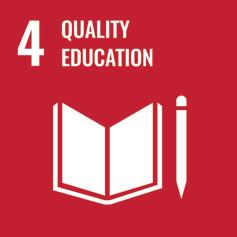
Université Côte d’Azur, alongside 11 European universities, participates in the AugMENTOR project , which aims to reshape learning by integrating emerging technologies to enhance skills ranging from literacy to critical and creative thinking. Funded by EU Horzion Europe, AugMENTOR develops an AI-powered pedagogical framework and open-access toolkit, enabling personalized learning paths that consider individual needs, preferences, and learning trajectories. The project fosters collaboration between students, teachers, and policymakers, promoting trust, transparency, and inclusivity in education while establishing best practices across diverse learning environments.
In 2024, AugMENTOR advanced its work through key events and initiatives:
• Athens Science Festival (April): Hosted a workshop “Artificial Intelligence and Educators: Friends or Foes?” engaging educators in discussions on AI’s role in teaching.
• Cybersecurity Education at Kaunas University of Technology (November): Featured the project at the Intermediality in Communication conference, emphasizing AI’s potential in digital literacy and safe learning environments.
• 4th Plenary Meeting, Waterford, Ireland (December): Partners reviewed progress, discussed ethical standards, and held workshops on intellectual property and business modeling.
The project continues to generate a strong and inspiring dynamic in a key sector of educational innovation.
Through its “ Sur les bancs de la fac ” (Back to the University bench) program, Université Côte d’Azur offers people aged 55 and over the opportunity to attend university courses free of charge. Since its launch in 2021, in partnership with the City of Nice, the initiative has seen remarkable success — welcoming 210 senior students this year, three times more than in its first edition.
Participants can choose from around a hundred courses across four campuses, from economics and law to sociology, humanities, and sport science. They attend
lectures alongside regular students, complete assignments and presentations — but without the pressure of final exams.
In October 2024, the university awarded honorary certificates to last year’s participants, marking another successful year for the initiative. The program continues to expand its offering and strengthen intergenerational connections through learning.
Université Côte d’Azur actively participates in the U7+ Alliance of World Universities, a coalition of university leaders across the world dedicated to facing global challenges.
In April 2024, Université Côte d’Azur joined over 80 presidents from 18 countries at the U7+ Presidential Summit hosted by Bocconi University, contributing to a statement calling on G7 leaders to remove barriers to education, support student mobility, and invest in higher education worldwide .
Through its involvement in U7+, Université Côte d’Azur emphasizes the role of universities in building inclusive academic pipelines, from admission to graduation, and in creating campuses where students, faculty, and staff can thrive. Université Côte d’Azur also aligns with U7+ initiatives aiming at expanding educational opportunities for marginalized communities and strengthen global partnerships.
By engaging in this international coalition, Université Côte d’Azur reinforces its commitment to high-quality, accessible, and inclusive education, amongst many global challenges such as democracy and peace, and climate change.
The EduMed Observatory Network , anchored at Université Côte d’Azur and collaborating with the Académie de Nice and numerous educational and research institutions, continues to expand its role as a pivotal resource hub in the geosciences. In 2024, the network highlighted several notable achievements:
• Recognition as a national resource center in the frame of the Year of the Geosciences (CNRS-INSU).
• A strong presence at the year’s launch event in Créteil, where EduMed showcased its rich educational resources alongside researchers, educational professionals, and partners such as BRGM and the Musée d’Histoire Naturelle.
• Active participation in Fête de la Science (October 2024) across multiple sites—from Nice to Antibes and Sospel—engaging the general public and school audiences.
• Organization of a field school (October 2024) that brought together 25 network members to explore hands-on geoscience topics, from lab methods to mountainous terrains in Mercantour, with support from EGU (European Geosciences Union).
• International collaboration and data sharing, exemplified by a seismic station in Catania (Italy), part of the EduMed network, that recorded volcanic activity in real time and enriched educational practices with live data.
• Continuous strengthening of digital tools: the EduMed “Data Center SISMO”, online platforms (such as RISSC, CSView, and Tectoglob 3D), and new modules (e.g. volcanic theme, satellite data) facilitate active learning and classroom use of real geophysical data.
Participation to the Spring of Educational Research 2024
Université Côte d’Azur proudly participated in the Printemps de la Recherche en Éducation (Spring of Educational Research) from March 18 to May 16, 2024, a national showcase of educational research led by the INSPE network. Through this participation, Université Côte d’Azur affirmed its commitment to advancing research in pedagogy, teacher training, and innovative educational practices. Researchers and doctoral students from Université Côte d’Azur presented their latest work and contributed to national discussions on the theme “Well-being at school: what are the training challenges?” , contributing to the national discourse on education reform, equity, and learning innovation.
In 2024, the Ulysseus European University Alliance significantly expanded its training activities with over a dozen Blended Intensive Programmes (BIPs) across its eight partner universities. These short, flexible programs combine virtual and in-person learning to promote mobility, interdisciplinary collaboration, and innovation among students, staff, and academics.
The year began in Seville, where three BIPs addressed themes such as mobility management, ethics in science and sustainability, and energy generation and storage. In Nice, Université Côte d’Azur hosted transformative programs including Camp Nice on ageing and well-being, Digital Soft Skills for Educators,
and European Project Management for administrative staff.
Genoa explored digital innovation for cultural heritage and accessible tourism, while Košice focused on urban well-being with the program Exploring the X Factor of a City. Haaga-Helia University in Helsinki offered BIPs on intercultural communication, business relocation, and multilingualism.
Together, these initiatives exemplify Ulysseus’s commitment to developing a European university of excellence—open, inclusive, and innovative—while strengthening educational mobility and cooperation across Europe.
2024 Program of the UniCA Science and Society Chair, in collaboration with the City of Nice and the Nice Côte d’Azur Metropolis
The Science & Society Chair, a partnership between Université Côte d’Azur, the City of Nice, and the Nice Côte d’Azur Metropolis, continued its mission in 2024 to foster dialogue between science and society. Building on the successful cycle of 2023 roundtables, including discussions on marine conservation and active ageing, the Chair expanded its focus to new scientific and societal challenges.
In 2024, a highlight of the program was the roundtable on the Square Kilometre Array (SKA) international radio telescope project. This event brought together researchers, local authorities, and community representatives to explore how such large-scale scientific infrastructures can engage local populations, address societal expectations, and integrate cultural and environmental considerations. Accompanying exhibitions and artistic contributions highlighted the intersection of science, community engagement, and cultural heritage.
On May 28, 2024, Université Côte d’Azur hosted the showcase of the “ Succeeding with Science ” program on the Valrose Campus lawns, bringing together 20 classes, 14 projects, and nearly 480 students.
Throughout the year, students worked on diverse scientific themes in collaboration with university laboratories, including agroecology, mathematics, oceanography, astronomy, and biology. The showcase allowed students to present their experiments, ideas, and discoveries across 20 interactive stands, highlighting their dedication and learning throughout the year.
The event aimed to foster early engagement with science, enhance social equity in access to scientific education, and strengthen connections between
researchers and students from middle and high schools in the Alpes-Maritimes region.
The day concluded with a prize ceremony led by the Rector of the Nice Academy and partners including INRAE, INSERM, Inria, the Observatoire de la Côte d’Azur, and the Villefranche Marine Institute, as well as a science quiz and refreshments to celebrate the students’ achievements.
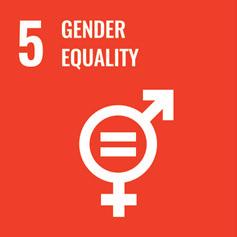
Exhibition: These women who move the lines
Continuing the initiative “ These women who move the lines ”, Université Côte d’Azur highlighted again in 2024 the achievements of women scientists through an online exhibition. The portraits showcase their careers, values, motivations, projects, inspirations, and the obstacles they have overcome, offering authentic insights into their professional journeys.
Despite women being the majority in French higher education, only 36% of researchers across all disciplines are women, up slightly from 30% fifty years ago. This gap raises questions about gender equality, career attractiveness for young women, and the presence of biases in research and knowledge production. Diversity and gender balance are essential not only for innovation and creativity but also to ensure the relevance and fairness of scientific solutions.
Through multiple complementary approaches, Université Côte d’Azur aims to attract female talent to research, challenge stereotypes, reduce self-censorship, and inspire the next generation by increasing the visibility of women in science. The exhibition highlights role models from a wide array of disciplines, including anthropology, art, biology, chemistry, computer science, literature, mathematics, and physics, encouraging young women from all backgrounds to envision a future in research.
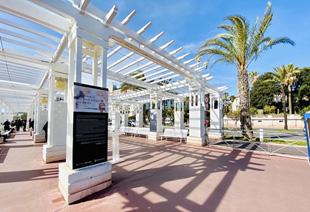
Gender equality and the inclusion of women in positions of responsibility within Université Côte d’Azur is a major area of progress for our university. Published in March 2024, the report on Université Côte d’Azur’s professional equality plan for the period 2021-2023 shows the progress made in this area and the efforts needed to continue improving professional equality. The new 2024-2026 plan has also been adopted (see the next article).
The percentage of women among permanent civil servants at the University is 49%, an excellent overall score for feminization (data from 2022). Wage disparities remain high despite a clear improvement (16.4% in gross monthly full-time equivalent remuneration, compared to 19.4% in 2019) and can be explained by the fact that men are more numerous in the civil service and in the best-paid positions. This situation is difficult to change in the short term, but the University is committed to addressing it effectively in its action plan.
The representation of women within the university’s administrative services is stable, with women making up 59% of the workforce. In the teaching staff, however, the percentage of women stands at 44.1%, indicating a steady presence but highlighting ongoing opportunities for improvement in gender balance in academia.
A good indicator of the progress made by Université Côte d’Azur is the Equality Index score of 82/100 in 2024, surpassing the national benchmark of 75%, confirming steady progress toward fair representation and pay equity. While challenges remain—particularly in leadership and research positions—the university continues to advance a proactive and measurable approach to equality, aiming to make gender parity a core value of its governance, teaching, and research culture.
In 2024, Université Côte d’Azur adopted its new Gender Equality Action Plan (2024–2026), reaffirming its strong institutional commitment to equality, diversity, and inclusion. Building on the progress achieved through the previous plan (2021–2023), this new roadmap outlines 22 targeted actions structured around six strategic priorities: pay equity, career access, work-life balance, prevention of sexual and gender-based violence, promotion of diversity in academic and professional pathways, and the integration of gender perspectives into research and education.
The plan is coordinated by the university’s Equality and Diversity Unit, which monitors implementation and ensures transparent reporting. It was developed collaboratively with staff, researchers, and social partners to reflect the university’s collective priorities. Concrete measures include training programs on gender bias, improved parental leave policies, strengthened reporting mechanisms for harassment and discrimination, and awareness campaigns promoting gender balance across disciplines.
In September 2024, the Nice University Hospital (CHU Nice, affiliated with Université Côte d’Azur) inaugurated a new Support Center for Women Victims of Violence , offering comprehensive assistance to women affected by physical, psychological, or sexual violence, including victims of genital mutilation.
The center brings together a multidisciplinary team of professionals— psychologists, gynecologists, midwives, and social workers—to provide holistic support addressing medical, psychological, social, and administrative needs. Its mission is to offer a safe and coordinated environment where women can find immediate care, long-term guidance, and access to essential services.
The center was officially opened in Nice in the presence of the Secretary of State for Citizenship and the Fight Against Discrimination, marking a major step forward in the region’s commitment to protecting women’s rights and promoting equality.
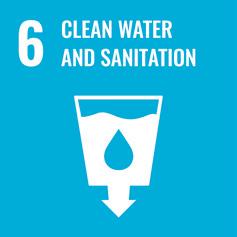
Deeply engaged with Sustainable Development Goal 6, focusing on water governance, ecological resilience, and public awareness, Université Côte d’Azur did its best again in 2024 to be proactive and innovative. The project TTEPIC (Theatre & Transitions: deep ecology, collective intelligence) illustrates this commitment. It investigates how performing arts can foster ecological awareness and social transformation.
In the framework of the project was organized in January 2024 a webinar entitled “ Scén-eau-graphies à l’ère de l’Anthropocène ”. It welcomed and brought together researchers and artists from different disciplines (performing arts, geography, physics, biology, agronomy, law, management sciences, anthropology, history, political science, philosophy, literature and other arts) in a spirit of openness and collaboration, to address issues of eco-poetics and participatory arts.
Held on October 14–15, 2024, at Université Côte d’Azur’s Saint-Jean d’Angély Campus, the “ River Politics and Communities ” study days marked the third session of the series “Putting Our Relationships with Rivers into Play: Experiencing, Speaking, Dreaming.”
Organized as part of the TTEPIC project (Theatre & Transition: Deep Ecology, Collective Intelligence), this event explored how rivers can be understood as spaces of ecological, cultural, and political interaction. Through dialogues between artists, researchers, and social actors, the sessions examined the ways in which theatre and performance can express, rethink, and transform our collective relationships to water and the environment.
These study days extended the reflections initiated in 2023 under the theme “Rivers at Play”, reinforcing Université Côte d’Azur’s commitment to bridging art, science, and sustainability.
In June 2024, Université Côte d’Azur, the Department of Alpes-Maritimes, and the Université Côte d’Azur Foundation inaugurated the partnership Chair “Water in the Territories of the Alpes-Maritimes” at the Mediterranean Institute for Risk,
Environment and Sustainable Development (IMREDD, Université Côte d’Azur). Bringing together academic, institutional, and private stakeholders, this Chair aims to develop innovative, science-based approaches to water management in a context of growing climate pressures — from droughts to floods.
Structured around three main axes — water resources and aquatic ecosystems, uses of water, and water governance — the Chair seeks to promote integrated, forward-looking strategies linking scientific research, innovation, and territorial action. It positions the Alpes-Maritimes as a living laboratory of sustainable water management, uniting mountain, coastal, and urban ecosystems.
On December 4, 2024, IMREDD hosted the first Forum of the Chair, gathering researchers, companies, and local authorities to build the Chair’s scientific program and identify shared priorities for 2025.
HYDROPROTECH program has been awarded the prestigious “Water Training and Education” label, a flagship initiative of UNESCO and IAHR (International Association for Hydro-Environment Engineering and Research).
On December 3, 2024, Université Côte d’Azur’s Spectrum Graduate School proudly announced that its HYDROPROTECH program has been awarded the prestigious “Water Training and Education” label , a key initiative of the UNESCO Intergovernmental Hydrological Program (IHP), jointly granted by UNESCO and the International Association for Hydro-Environment Engineering and Research (IAHR).
This international recognition highlights the program’s academic excellence and its strong commitment to sustainable and responsible water resource management. Designed to train highly skilled professionals in water engineering, HYDROPROTECH provides students with cutting-edge expertise in hydrological modeling, urban water management, hydraulic infrastructure design, resource management, and flood risk assessment.
With over 20 years of experience, the two-year Master’s program offers both apprenticeship opportunities and international mobility, including partnerships such as the Hydro informatics and Water Management exchange with IWHR (China Institute of Water Resources and Hydropower Research) in Beijing.
Université Côte d’Azur students participated in an international Hackathon addressing the multi-faceted, highly critical and challenging topic of Water Resources
Ahead of the Winter Olympic and Paralympic Games in the French Alps (2030) and Salt Lake City (2034), Université Côte d’Azur and the University of Utah launched a joint research program focused on sustainability and inclusivity. Supported by a dedicated fund, four collaborative projects were selected, addressing air quality, athlete health, nutrition, and sustainable water management.
In this framework, Université Côte d’Azur participated to an international hackathon on water resources held in January 2025 at the Wilkes Center for Climate Science & Policy (University of Utah) . This event culminated a process that began in 2024, when five Polytech Nice Sophia engineering students were selected after winning Université Côte d’Azur’s local hackathon on ocean sustainability.
Working alongside Utah students, they developed innovative solutions to global water challenges, supported by Isabelle La Jeunesse, coordinator of the “Water in the Territories of the Alpes-Maritimes” Chair at Université Côte d’Azur’s IMREDD. One French student’s team won the Audience Award and took second place overall, highlighting the success of this cross-border collaboration and the shared commitment of both universities to fostering innovation for sustainable development.
Contribution to the 2024 Annual Publication “Law and Management of Local Authorities” dedicated to water
Published in November 2024, this collective volume (Éditions PUG – Collection “Law and Management of Local Authorities”) explores the growing complexity of water governance in the context of climate change. Published as part of the Grale group (Research Group on Local Administration in Europe) with the cooperation of Cerema, the book examines how droughts, extreme weather, and competing uses have turned water from an assumed abundance into a critical and contested public resource.
The publication brought together leading experts to analyze key issues such as water management, pricing, access, sanitation, pollution, and transboundary governance, offering a comprehensive overview of the political, legal, and economic dimensions of water policy.
Université Côte d’Azur is prominently represented in this volume through contributions from researchers at the CERDACFF laboratory
Installation of a SOURCEO water fountain on the Nice campus
Université Côte d’Azur has installed eco-friendly water fountains across its campuses in partnership with Fontaineo, promoting access to safe drinking water while reducing plastic waste. These refill stations encourage students, faculty, and staff to adopt reusable bottles, aligning with the University’s mission to support clean water access and sustainable water use. By offering free and convenient access to potable water, the initiative supports SDG 6 (Clean Water and Sanitation) and contributes to broader campus sustainability goals
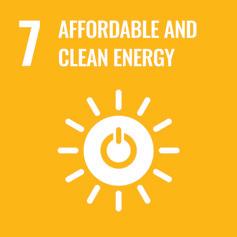
On November 25, 2024, Université Côte d’Azur signed an agreement with key stakeholders of the Nice Méridia eco-district to establish an energy community, marking a major step toward local energy autonomy and sustainability.
This initiative aims to enhance territorial energy resilience by combining the efforts of neighborhood communities and local authorities. The project focuses on minimizing energy needs, promoting widespread electrification, developing local renewable energy sources, and optimizing the balance between energy supply and demand.
The eco-district’s design—integrating housing, services, commerce, and sustainable mobility options like walking, cycling, and public transport—supports energy efficiency. Local renewable energy, including solar, geothermal, and district heating networks, powers the area.
The energy community enables collaboration among multiple stakeholders to optimize production and consumption of renewable energy locally, reducing waste and reliance on storage. Members of the community include: Université Côte d’Azur, Métropole Nice Côte d’Azur, the local Chamber of Commerce, Campus Sud des Métiers, Meridia Smart Energie (IDEX Territoires), Habitat 06, and the Palazzo Meridia condominium.

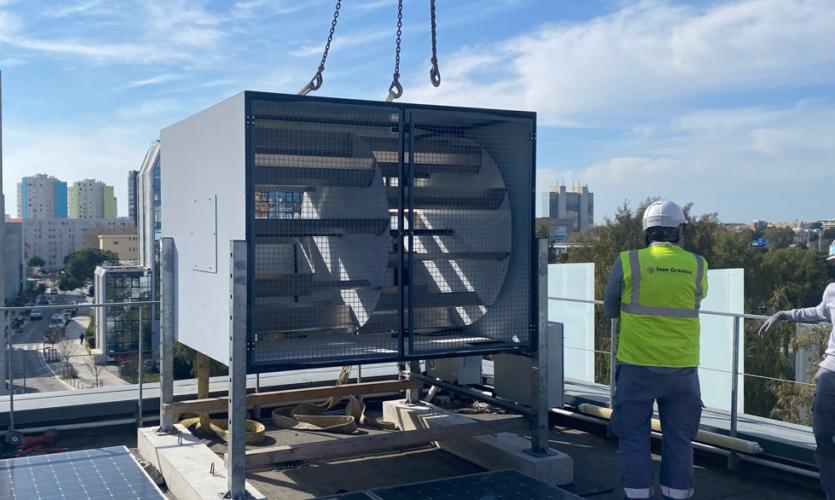
Université Côte d’Azur’s IMREDD building in the Var plain now hosts a second wind turbine , reinforcing its role as a local technology incubator. Since September 2020, IMREDD has been testing various renewable technologies to assess and optimize their contribution to the local energy transition.
The new horizontal-axis WindBox turbine, combined with solar panels, is designed to harness urban winds and maximize energy production with a capacity of 2.1 kWc. Its performance will be compared to the previously installed vertical-axis turbine, supporting IMREDD’s pragmatic approach to integrating emerging technologies into evolving urban environments.
Managed by an intelligent energy system, the turbine’s output can be stored and redistributed according to local needs, enhancing the resilience of the Nice Méridia energy network and contributing to the newly established energy community.
On April 4, 2024, Université Côte d’Azur released the report reviewing its energy renovation works under the France Relance plan . With €54 million in funding received in December 2020, the university undertook extensive renovations across its main campuses, focusing on environmental performance, energy efficiency, and occupant comfort.
This ambitious program has modernized eight campuses, including older facilities, improving thermal comfort, reducing energy consumption, and enhancing the overall campus experience for students, faculty, and staff. The initiative reflects Université Côte d’Azur’s commitment to sustainable development and its transition toward greener, more efficient campuses.
The France Relance energy renovation plan at Université Côte d’Azur was guided by three main objectives. First, energy performance: the university aims to significantly reduce campus energy consumption, notably by phasing out fossil fuels. Second, architectural preservation: renovations modernize technical systems without compromising the historic and aesthetic value of
buildings. Third, user comfort: improving thermal comfort and overall campus experience for students, faculty, and staff in all seasons, while maintaining as many in-person classes as possible. Together, these efforts create a sustainable, efficient, and welcoming environment that enhances both well-being and academic success.
The report details the work carried out across all of the University’s campuses, such as the renovation of a lecture hall, the installation of solar panels and electric charging stations on the Carlone campus, or the replacement of windows and installation of lighting on the Valrose campus. This work has resulted in significant savings in energy consumption and the use of renewable energy produced directly on campus.
For several years now Université Côte d’Azur has been striving to better manage its real estate assets and to fully identify the richness of its heritage, including biodiversity and natural areas. Following the plan for energy sobriety, the University is implementing a targeted energy transition project aiming to reduce overall energy consumption by 10% by 2024 and by 40% by 2050.
Numerous projects, such as GECOS (Green Ecocampus Data System) and SPORES (Optimized Supervision and Management of Campus Energy Networks), have been launched to support these ambitions and to provide the various departments (DP, D2P, 3DS) and technical managers with robust tools and methodologies. In this context, Université Côte d’Azur is committed to enhancing the skills and responsibilities of technical services, empowering them with new tasks and expertise
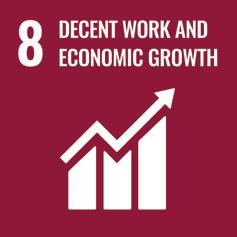
The Human Resources Strategy for Researchers: An Action Plan Endorsed and Praised by European Experts
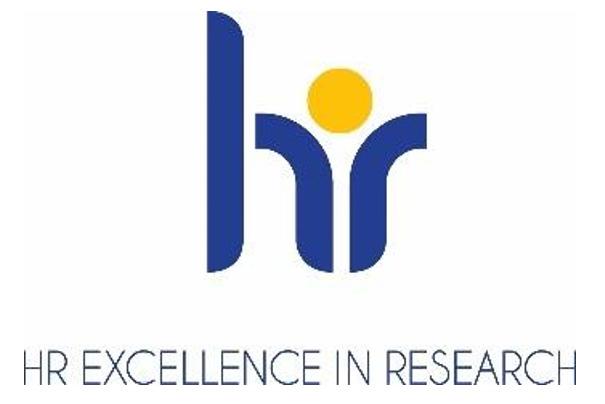
Two years after earning the “Human Resources Strategy for Researchers” (HRS4R) label, Université Côte d’Azur has successfully completed its first evaluation phase — and received high praise from European experts for the quality and ambition of its implementation plan.
The assessment, conducted by the European Commission shared in 2024, highlighted several key strengths:
• The strong integration of the HRS4R approach into the university’s overall strategic vision and its ability to document progress across all actions;
• The innovative creation of a network of HRS4R representatives across departments and research laboratories, which was commended for its effectiveness in engaging the research community;
• The high quality of communication materials — including documentation and videos — which were recognized as “a model for other institutions.
As part of the previously mentioned and ongoing Human Resources Strategy for Researchers (HRS4R) action plan (2022–2027), Université Côte d’Azur continues to strengthen its commitment to supporting the professional growth and mobility of its researchers.
In 2024, the University expanded the initiatives launched under its “Career and Mobility Action Plan”, first introduced in 2022, through the development of the “Career, Counseling and Mobility” service within the Human Resources Department. This dedicated service provides tailored individual and group support designed to:
• Guide researchers in shaping and valuing new professional projects;
• Anticipate and support career transitions and mobility pathways;
• Adapt to the evolving landscape of research careers;
• Promote long-term career perspectives and recognition;
• Strengthen and acknowledge individual and collective competencies.
Université Côte d’Azur is expanding its range of work-study programs , which are in demand among students. These courses make it easier for students to find their bearings and improve their living conditions by guaranteeing them an income while they study. It also helps them gain access to the professional world, thanks to real, valuable work experience right from the end of their studies.
Number of students with a work-study contract:
Support the career development of our students through intership mobility scholarships
Université Côte d’Azur offers several financial aid options to support students in pursuing international mobility —whether for study programs, internships, or short-term stays abroad. These grants aim to help reduce financial barriers and encourage broader participation in global learning and professional experiences.
Key programs include:
• Erasmus+ (within the EU): A well-established program that enables students (also teaching staff and researchers) to study or work abroad within European Union countries. Université Côte d’Azur has participated in this initiative for over 25 years.
• Erasmus+ MIC (Mobility Outside the EU): Allows stays outside the EU, both for studies and internships, with support for eligible participants including staff.
• Bourses Région Sud : These grants are offered by the Région Sud to students of Université Côte d’Azur specifically to help fund international study or internship projects.
• AMI-MESRI (Ministry Aid to International Mobility) : Managed by Université Côte d’Azur, this financial aid is targeted at students who meet social criteria
(scholarship-eligible students), helping them carry out their mobility plans under the best conditions.
• Foreign Scholarships: Some governments, foreign universities or foreign institutions also provide scholarships for study abroad, which can be combined with the university’s own mobility support.
These mobility grants open up important opportunities: doing an internship abroad, participating in academic exchanges, or enrolling in semesters overseas. They help enrich academic experience, improve language skills, foster global networks, and enhance employability.
Université Côte d’Azur International Relations office has a service dedicated to help students with these opportunities. They can advise, check their eligibility, explain the procedures, process the applications and manage the grants.
The GREDEG Research Laboratory: Committed to Analyzing and Advancing Understanding of Economic Development and Labor Market Dynamics
The GREDEG Research Laboratory (CNRS–Université Côte d’Azur Joint Research Unit) is dedicated to advancing interdisciplinary research at the crossroads of economics, law, management, and sociology. Its scholars—drawn from CNRS, INRAE, Université Côte d’Azur, and SKEMA Business School—analyze the mechanisms driving economic development, innovation, and labor market transformation in a rapidly changing global context.
In 2024, GREDEG reinforced its commitment to understanding how innovation and global finance interact with sustainable development and social progress Among many examples, the Interdisciplinary Days on the Environment (February 1–2, 2024) highlighted the intersection between economic policy, environmental governance, and labor transitions.
The study days “Reorienting Innovation” (October 10–11, 2024), co-organized with the Association Internationale de Management Stratégique (AIMS) and the Association Information et Management (AIM), invited researchers to critically examine the role of innovation in an era of environmental and social constraints. Discussions explored critical perspectives on innovation, responsible technological development, consequences on the Labor market and the idea of “slowing down innovation” as a strategic and ethical choice.
International engagement also remained a strong pillar of GREDEG’s activity, exemplified by the seminar on “The BRICS and their Efforts to Transform the International Monetary and Financial System” (October 24, 2024), which shed light on global power shifts and new financial architectures.
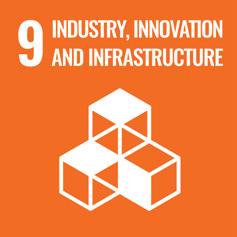
IdEx supports innovation in partnership with young companies
In 2024, Université Côte d’Azur’s IdEx Innovation Program reinforced its mission to boost technology transfer and support the creation of DeepTech start-ups emerging from academic research. Through key initiatives such as the “Start-up DeepTech” and “Innovation Partnership” calls, the program fostered collaborative R&D and entrepreneurship in close coordination with UniCA Entreprendre, Ulysseus, and the IMREDD.
The program received national recognition with the university’s new “Grand Établissement” status (July 2024), and its impact was commended by HCERES for effectively linking research, innovation, and regional development. Highlights of 2024 include:
• A €133,000 grant to UniCA Entreprendre to expand DeepTech project sourcing, training, and international entrepreneurship;
• The launch of the Pre-maturation Call for Projects within the Pôle Universitaire d’Innovation (Med’Innov);
• Several IdEx-backed start-ups awarded Bpifrance’s BFT Lab funding;
• A promising DeepTech project on dry eye treatment
In 2025, IdEx will further integrate its innovation tools and expand its scouting and mentoring services to accelerate the emergence of high-impact start-ups across the Côte d’Azur innovation ecosystem.
For the Corsican and Azur territories, Med’Innov aims to strengthen awareness and training in innovation and entrepreneurship among researchers and students, boost public–private research collaborations, encourage technology transfer, and foster the creation of innovative and deeptech companies. The PUI brings together, beyond its founding members, a wide network of innovation and entrepreneurship actors — including local authorities, competitiveness clusters, foundations, health institutions, and technology transfer organizations — to ensure coherent implementation of actions and reinforce their impact.
2024 was a decisive year for PUI Med’Innov which accelerated its mission to boost research–industry collaborations and innovation in the Azur–Corsica region.
Two calls for innovation projects were decided: one supporting partnership research between laboratories and companies, and another focused on prematuration, helping teams validate their scientific and technical proofs of concept. Each offers up to €45,000 in funding for short, impactful projects.
Anchored in a strong academic and economic ecosystem, Med’Innov now operates across six strategic axes, covering the full innovation pathway — from project detection to entrepreneurship. With these initiatives, 2024 positioned Med’Innov as a driving force for regional innovation and technology transfer.
On Friday, July 19, 2024, the annual meeting of the PUI Med’Innov was held at the Université de Corse, gathering the founding members (Université de Corse, Université Côte d’Azur, and ten major innovation stakeholders) and partners. This day of rich exchanges allowed all participants to discuss the strategic directions to be given to the PUI.
The successful startups « Les Pépites »
UniCA Entreprendre (the Innovation Center for Entrepreneurship) coordinates the Pépite Méditerranée branch in the Alpes-Maritimes department. Thanks to this initiative, Université Côte d’Azur has nurtured a dynamic array of startups (called “Pépites” ) focused on diverse fields such as urban biodiversity, biomedical engineering, agriculture, and sustainable design. These ventures are developing innovative solutions and technologies that address pressing challenges while promoting sustainability. Through support and recognition at various awards, these startups exemplify the university’s commitment to fostering innovation and entrepreneurship, contributing significantly to local and global industry and innovation.
The year 2024 saw the continued growth of PÉPITE PACA-Est with remarkable progress:
• 334 applications for the national student-entrepreneur status (+28% vs. 2023)
• 286 students supported (+40%)
• 9,000 participants reached through awareness programs (+49%)
• 142 entrepreneurship awareness events organized
• 231 individuals trained directly
Under the agreement between Université Côte d’Azur and Métropole Nice Côte d’Azur, PÉPITE PACA-Est carried out actions along three strategic axes:
1. Raising awareness about impact-driven entrepreneurship
2. Supporting impact entrepreneurship projects
3. Boosting & promoting impact entrepreneurship
Université Côte d’Azur’s commitment to the Curator Erasmus + project
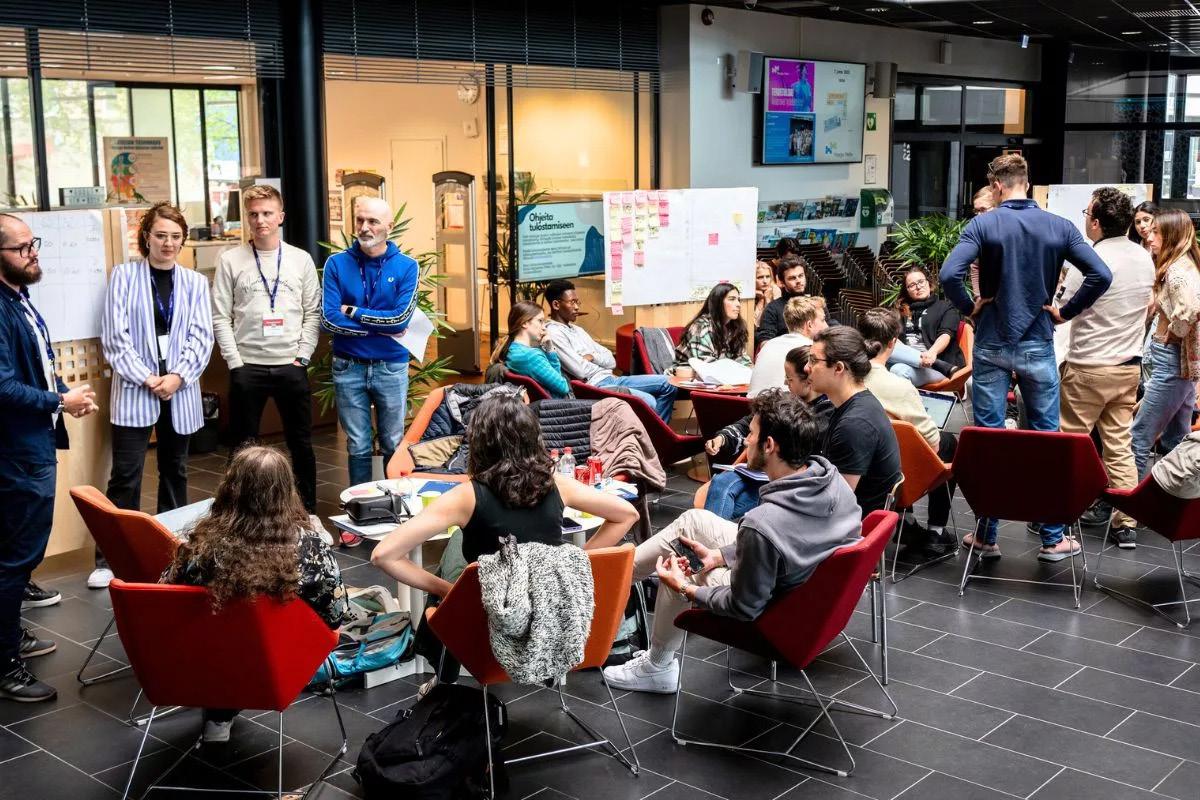
Co-funded between November 2023 and April 2026 by the EU‘s Horizon 2020 Research and Innovation program, the Curate “Co-created student centered incubator program“ project brings together 5 partners of the Ulysseus European University Alliance, including of course Université Côte d’Azur, to co-create and co-design the Curate Incubator Curriculum and a step-by-step Incubator framework in close collaboration with the Ulysseus Innovation hub ecosystem .
The year 2024 was a foundational year — one focused on establishing and launching the bases for collaboration among the partners involved in this ambitious project, which is set to gain momentum in 2025. The MOOC CURATE AI Entrepreneurship Incubator was developed throughout the year, and was launched in September 2025 after a successful cooperation between Université Côte d’Azur and its Ulysseus partners.
CURATE combines AI solutions related to the entrepreneurial process to develop an incubator program that will provide students with a challengebased platform to better meet their learning styles and provide transferable forward-looking skills.
CURATE actively engages those from the world of work to become key catalysts in the codesign of new learning and teaching practices with the aim of providing solutions to real world challenges presented by labour market actors.
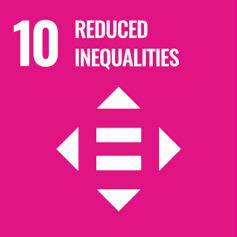
Organized for a whole month in March until the beginning of April 2024, the Equality Weeks aim to raise awareness within the university community about all forms of discrimination and inequality — in academic, social, and professional settings.
The 2024 edition marked a new milestone with an expanded and diversified program coordinated by the Equality Network. The event featured a rich lineup of workshops, conferences, exhibitions, theater forums, podcasts, and film discussions, reaching a broader audience across campuses.
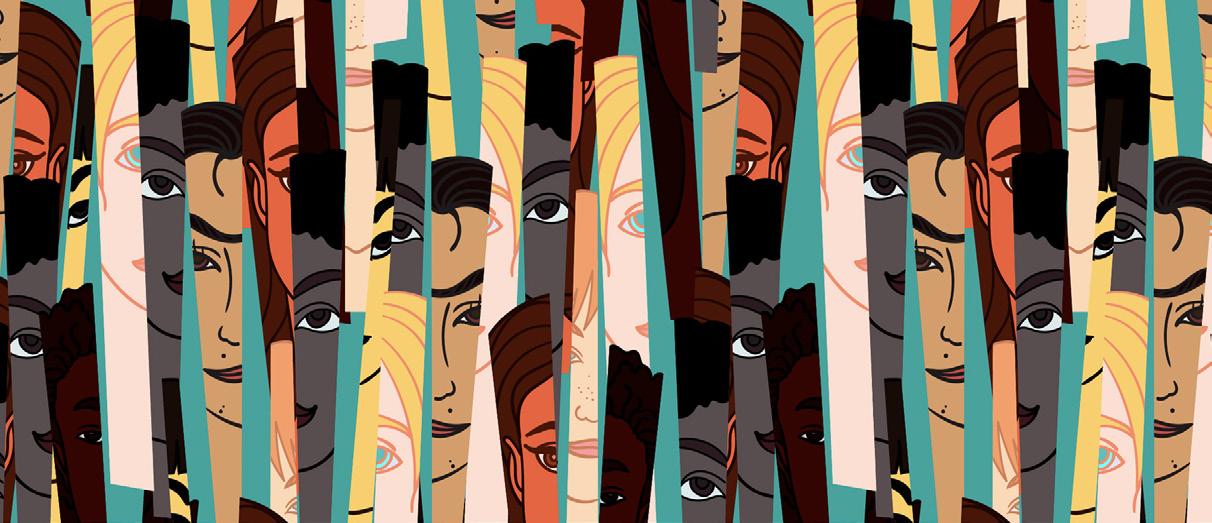
Highlights included the exhibition “Éclaireuses d’humanité” in partnership with SOS Méditerranée, showcasing women’s resilience and humanitarian action; “C’est mon Koeur II” by Ilan Dehé, celebrating women who have overcome breast cancer; and the presentation “Women Who Made History”, honoring influential female figures. You will find more information on the many events organized in 2024.
At Université Côte d’Azur, the Disability Office (Mission Handicap) plays a key role in promoting inclusion and accessibility across the entire institution. Led by a Disability Officer under the supervision of the vice-president, she also serves as both the staff disability liaison and the student disability advisor. The mission operates transversally across all university services, structures, and departments. It is closely integrated with the Human Resources Department for staff support and the Directorate of Studies and Education for studentrelated initiatives.
As part of its ongoing commitment to equal opportunities, the Disability Office launched a series of career inclusion workshops designed for students with all types of disabilities. The first workshop, held on December 5, 2024, marked an important step in the University’s efforts for inclusion. The session aimed
to provide guidance and resources to help students prepare for employment and strengthen their professional integration.
Through its Vice-President for Disability, who also serves as President of APACHES, the national association of professionals supporting students with disabilities in higher education, the university actively contributes to national discussions on inclusive education.
In 2024, Université Côte d’Azur took part in the APACHES Annual Days held at the University of Strasbourg (Unistra). These meetings focused on recent developments in supporting students with disabilities in higher education — including new legal and regulatory frameworks, improvements in study and exam accommodations, and the finalization of the National Guide for Supporting Students with Disabilities.
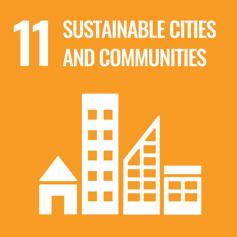
2024: A year of experimentation for the Chair Territories & Autonomous Shuttles
The year 2024 marked a new stage for Université Côte d’Azur’s Chair Territories & Autonomous Shuttles (TNA), led by IMREDD, with several large-scale real-life trials across the region.
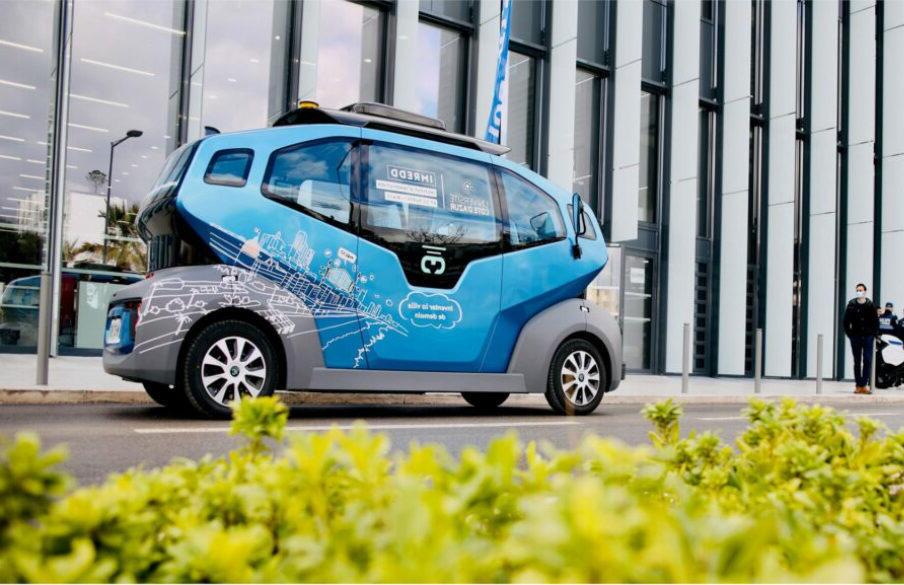
From Carros-Le Broc to Valberg , MandelieuLa Napoule and Cannes , the Chair tested autonomous shuttle services designed to improve local mobility, accessibility, and sustainability. These experiments offered users free, on-demand transport in industrial, urban, and touristic areas, while collecting valuable feedback for continuous improvement.
Each pilot involved close collaboration with local authorities and regional partners — including Métropole Nice Côte d’Azur, Région Sud, Banque des Territoires— reinforcing the Chair’s applied research mission to build safer, more efficient, and inclusive mobility systems.
Sustainable mobility at the heart of Université Côte d’Azur’s commitment: from research to practice!
Through the MOBILISCAPE project led by the Observatory for Ecological and Citizen Transition (OTECCA), the university investigates shared vehicle use, multimodal mobility and user behaviour in real-life settings.
On the operational side, the university has implemented numerous practical measures:
• A “ forfait mobilité durable ” allowing staff and students to receive reimbursement for low-carbon commuting options.
• The “Tous en selle” program , which promotes bicycle maintenance and repairs on campus to support cycling as a daily choice.
• Deployment of a charging service for electric and hybrid vehicles , increasing
infrastructure for clean transportation.
• Improved support for public-transport subscriptions , further encouraging bus and tram use for commuting.
23rd Edition «Mars aux musées» to (re)discover the museums of Nice through an offbeat, innovative, and bold program.
The 23rd edition of Mars aux Musées from March 9 to 23, 2024, invited students and the wider community to experience Nice’s museums in bold, innovative ways (“Against the tide”). Organized by the EMIC Master students (Master’s Degree in Information and Communication - Event Management, Mediation, and Cultural Engineering Track) at Université Côte d’Azur, in collaboration with the City of Nice, the festival transformed five iconic museums into spaces for experimentation, featuring over 70 artists and 30 mediations.
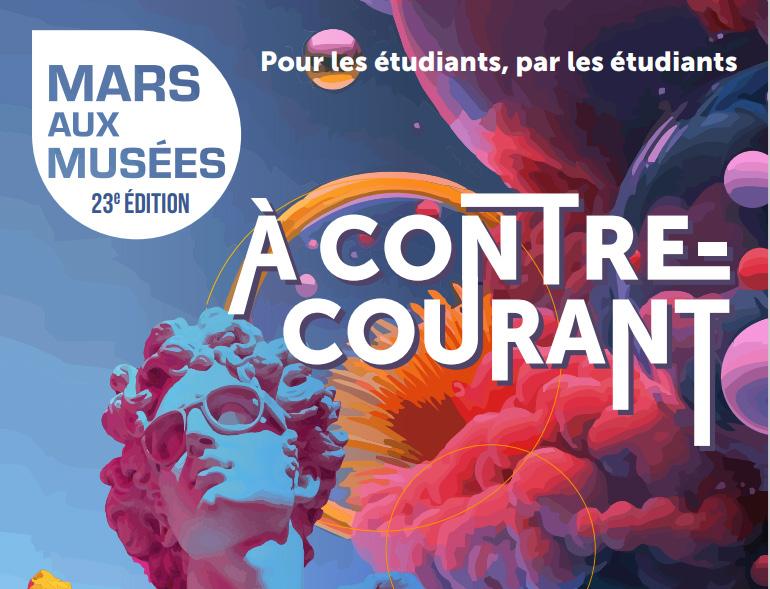
The program challenged traditional museum norms, showcased local emerging talent, offered masterclasses, and promoted access to culture, education, and sustainable community engagement. With over 2,300 visitors last year, the festival reinforced the role of students as cultural innovators shaping a creative, sustainable city.
Under the Stars: 3,000 People Celebrate 50 Years of the Calern Plateau at
On July 6, 2024, nearly 3,000 visitors gathered on the Calern plateau for the 22nd edition of Nuit Coupoles Ouvertes , celebrating 50 years of this unique observatory. Organized by the Observatoire de la Côte d’Azur (OCA, part of Université Côte d’Azur) with the support of local partners and volunteers, the event offered an immersive and educational experience for all ages.
Attendees explored astronomy and space science through 16 interactive workshops, 39 lectures across three cycles, and guided tours of the observatory’s scientific instruments, including the newly reopened Schmidt telescope. They also engaged with 14 amateur astronomy clubs, whose guidance and expertise helped bring the universe closer to the public.
The Partner Village served as the heart of the event, featuring information points, exhibits, live performances, and activities focused on Earth sciences, astronomy, and environmental awareness. With the involvement of nearly 150 OCA staff, volunteers, and institutional partners, the festival strengthened the connection between the observatory and the wider community, inspiring curiosity and promoting science education.
The 2024 cultural season celebrates creativity and personal growth with over 35 events
The 2023-2024 cultural season at Université Côte d’Azur celebrated creativity, personal growth, and community engagement through over 35 events across the year. From interactive exhibitions to diverse performances (rap, jazz, dance, theatre…), the season highlighted the role of culture in building vibrant, inclusive, and sustainable communities.
Among the highlights, the famous Festival Jazz à Valrose brought together artists and audiences in a dynamic exchange, fostering cultural participation and social cohesion. Through these initiatives, the University promotes access to culture and education, strengthens community ties, and inspires students and residents to shape more creative and sustainable urban environments.
Université Côte d’Azur has adopted a comprehensive Telework Charter to promote work-life balance, employee well-being, and environmental sustainability.
The charter allows staff to work remotely up to two days per week, offering flexible scheduling and access to training resources. It aims to reduce commuting, lower carbon emissions, and enhance productivity, contributing to a more sustainable and equitable academic community.
At Université Côte d’Azur, knowledge and culture are shared beyond the academic community. Our institutions are open to everyone — students, researchers, and members of the public — who wish to learn, explore, or simply enjoy a space dedicated to discovery.
University libraries welcome all visitors for on-site consultation in accordance with their internal regulations. While certain areas may be reserved for specific categories of users, the majority of spaces and resources are freely accessible. To borrow materials, access online resources, or use Wi-Fi services, registration is required, with procedures and fees varying by user status.
Villa Arson , a unique site bringing together an art school, a contemporary art center, and public gardens, also embodies this spirit of openness. It is currently hosting Yours Truly, an exhibition by the 2024–2025 graduates, and welcomes all visitors daily except on Tuesdays — with free admission and no reservation required.
Research and Innovation for Urban Development and Quality of Life in the City
Université Côte d’Azur actively contributes to sustainable urban development through research and innovation projects that enhance the quality of life, social inclusion, and environmental resilience in cities, directly supporting SDG 11.
The University is involved in the Parc Méridia eco-district in western Nice, a 64-hectare demonstration of the productive and sustainable city. In partnership with local authorities and IMREDD, Université Côte d’Azur develops tools for optimizing mobility, fostering urban agriculture, soil regeneration, circular economy practices, and smart urban planning. The project integrates social housing, public amenities, and local services, fully aligned with the 15-minute city concept, ensuring accessibility and community cohesion.
Through initiatives like SERENITY and INBUILT, Université Côte d’Azur also drives innovation in sustainable construction, resilient infrastructures, and environmentally friendly building materials, enabling safer, greener, and more inclusive urban spaces.
By combining applied research, student engagement, and partnerships with local stakeholders, Université Côte d’Azur transforms knowledge into practical solutions for sustainable urban living. These efforts illustrate how universities can actively shape inclusive, resilient, and environmentally responsible cities.

European waste week !
From November 16th to 24th, 2024, Université Côte d’Azur Eco-Responsibility Mission organized a series of engaging activities as part of Waste Reduction Week, under the theme “En Route pour la COP Climat 2024” Waste Reduction Week, under the theme “En Route pour la COP Climat 2024” . The week aimed to raise awareness and mobilize the campus community around climate action and sustainable practices.
Activities included interactive workshops and educational “fresques” to explore the challenges of climate change and inspire practical solutions for students, staff, and local participants. In addition, the Mission partnered with the local association Nice Plogging for a waste collection initiative along the Paillon River, combining physical activity with environmental stewardship to remove litter and promote clean, sustainable urban spaces.
Through these initiatives, the Eco-Responsibility Mission encourages the adoption of eco-friendly habits, responsible consumption, and community engagement, reinforcing the University’s commitment to Sustainable Development Goal 12, which focuses on responsible consumption and production.
Rethinking our relationship to education, social life, consumption, and our ways of living
Université Côte d’Azur invited its community to rethink our societies relationship to education, social life, consumption, and our ways of living through two complementary events in early December 2024.
On December 2nd, 2024 a roundtable at SophiaTech Campus addressed the tension between economic growth and the habitability of the planet, exploring how sustainable solutions such as low-tech practices and agroecology can contribute to a more balanced and equitable future. Researchers from different backgrounds discussed the concepts of growth and consumption, and tried to present opportunities to limit our societies’ environmental impacts.
On December 5th, 2024, a screening of Captain Fantastic (2016) at Cinéma Variétés in Nice sparked a discussion on alternative approaches to education,
social organization, and lifestyle choices. The movie projection was followed by a debate between a panel of researchers and doctors from Université Côte d’Azur and the public, giving different points of view and perceptions on the movie and the questions it raises.
Both events are part of the University’s events “En route pour la COP Climat 2024”, encouraging everyone at Université Côte d’Azur to connect individual and collective choices with broader climate action and sustainable development.
Very first collaborative workshop from the academic community aimed at developing scenarios to reduce the carbon footprint of research laboratories.
On 27 and 28 November 2024, the Eco-Responsibility Mission of Université Côte d’Azur organized the workshop “Ma Terre en 180 minutes” , an event (part of “En Route pour la COP Climat”) in which members of the academic community came together to critically examine research practices and chart pathways to significantly reduce laboratory carbon footprints.
This new and highly engaging workshop provided participants with a dynamic, hands-on experience: they confronted real-world scenarios, reflected on the environmental impacts of travel, computing, field missions and other typical research activities, and collectively drafted concrete impact reduction strategies for research laboratories.
Université Côte d’Azur committed to support for behavior change towards more sustainable consumption patterns.
Université Côte d’Azur’s Mission for Eco-Responsible Campus and Laboratories is dedicated to fostering a more sustainable and innovative university by shifting behaviors and embracing responsible consumption across the institution.
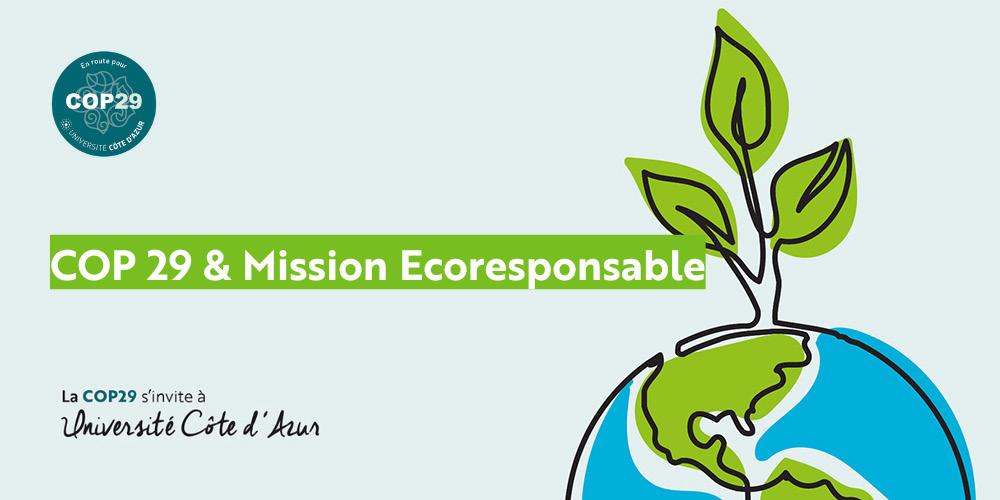
Aligned with SDG 12 – Responsible Consumption and Production, the mission pursues a holistic strategy: raising awareness, implementing new methodologies, and advancing circular economy practices such as the 5R-pyramid (Return to the earth / Refuse / Reduce / Reuse / Recycle).
In 2024, a comprehensive program of workshops and events engaged students, staff, researchers, and occasionally the general public in sustainable practices.
Notable actions included:
• “Inventing our low-carbon lives” workshops measuring individual and collective carbon impacts and promoting behavior change.
• The Repair Café and Gratiferia-free-market initiatives where reuse and repair took precedence over disposal, supporting a circular mindset.
• Composting and vermicomposting sessions, participatory gardens, and low-tech DIY projects that empowered the university community to act locally and concretely.
Symposium on Ecological Transition and Sustainable and Responsible Consumption
Held on June 27–28, 2024, at the Saint-Jean-d’Angély Campus, the symposium “Ecological Transition and Sustainable and Responsible Consumption” brought together researchers from multiple disciplines to explore how our societies can rethink production, consumption, and lifestyles in light of the ecological transition.
Building on previous conferences on Nature and Emotion (2022) and Environmental Justice and Responsible Consumption (2023), this 2024 edition continued the reflection on sustainability by examining how behavioral, social, and economic transformations can support more responsible modes of consumption.
The event, supported by GREDEG, GRM, the Academy of Excellence 3, and Axes 3 & 4 of the MSHS Sud-Est, fostered a collaborative and interdisciplinary dialogue between economists, sociologists, philosophers, and management scholars. Discussions culminated in a participatory roundtable designed to translate research insights into actionable proposals for sustainable consumption practices.
It’s a wrap for the Ecological Transition and Sustainable and Responsible Consumption project!
The 2022–2024 Ecological Transition and Sustainable and Responsible Consumption project , supported by MSHS Sud-Est at Université Côte d’Azur, concluded after three years of interdisciplinary work exploring the connections between ecological transition, sustainability, and changing consumption patterns.
Structured around five major research axes — Cognitive and Computational Sciences, Digital Technologies and Interactions, Globalizations and Alterities,
Territories and Power Dynamics, and History of Ideas and Scientific Practices — the project fostered collaboration among researchers from multiple disciplines.
Building on previous initiatives such as Nature and Emotion (2022) and Environmental Justice and Responsible Consumption (2023), the 2024 symposium “Transition écologique et consommation durable et responsable” marked the culmination of this research cycle. The event combined academic presentations and a participatory roundtable to develop collective reflections and actionable proposals on sustainable consumption and the ecological transition.
The TECDR project has strengthened interdisciplinary cooperation within Université Côte d’Azur, creating a foundation for future research addressing sustainability challenges in relation to human behavior, technological innovation, and social transformation.
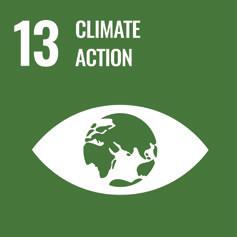
A strong commitment highlighted by the press
On November 21, 2024, during COP 29, BFM Côte d’Azur visited Université Côte d’Azur to feature its Mission for Eco-Responsible Campus and Laboratories. The report highlighted how the mission promotes sustainable behaviors and responsible consumption across the University, showcasing interviews with the mission’s coordinator and participating students.
Key activities included low-carbon workshops, Repair Café and Gratiferia initiatives, and hands-on projects like composting, participatory gardens, and low-tech DIY activities.
The Academy 3 “Space, Environment, Risks and Resilience” is pleased to share with you the 2024 edition of the Green Book!
On October 9, 2024, Université Côte d’Azur’s Academy 3—focused on Space, Environment, Risks, and Resilience—released its 2024 Green Book. This publication showcases over 30 innovative «First» research projects, approximately 10 interdisciplinary «Consortium» initiatives, and around 15 scientific outreach programs supported over the past four years. Collectively, these projects involved more than 80 research laboratories, reflecting the academy’s commitment to fostering interdisciplinary collaboration and advancing knowledge in these critical areas.
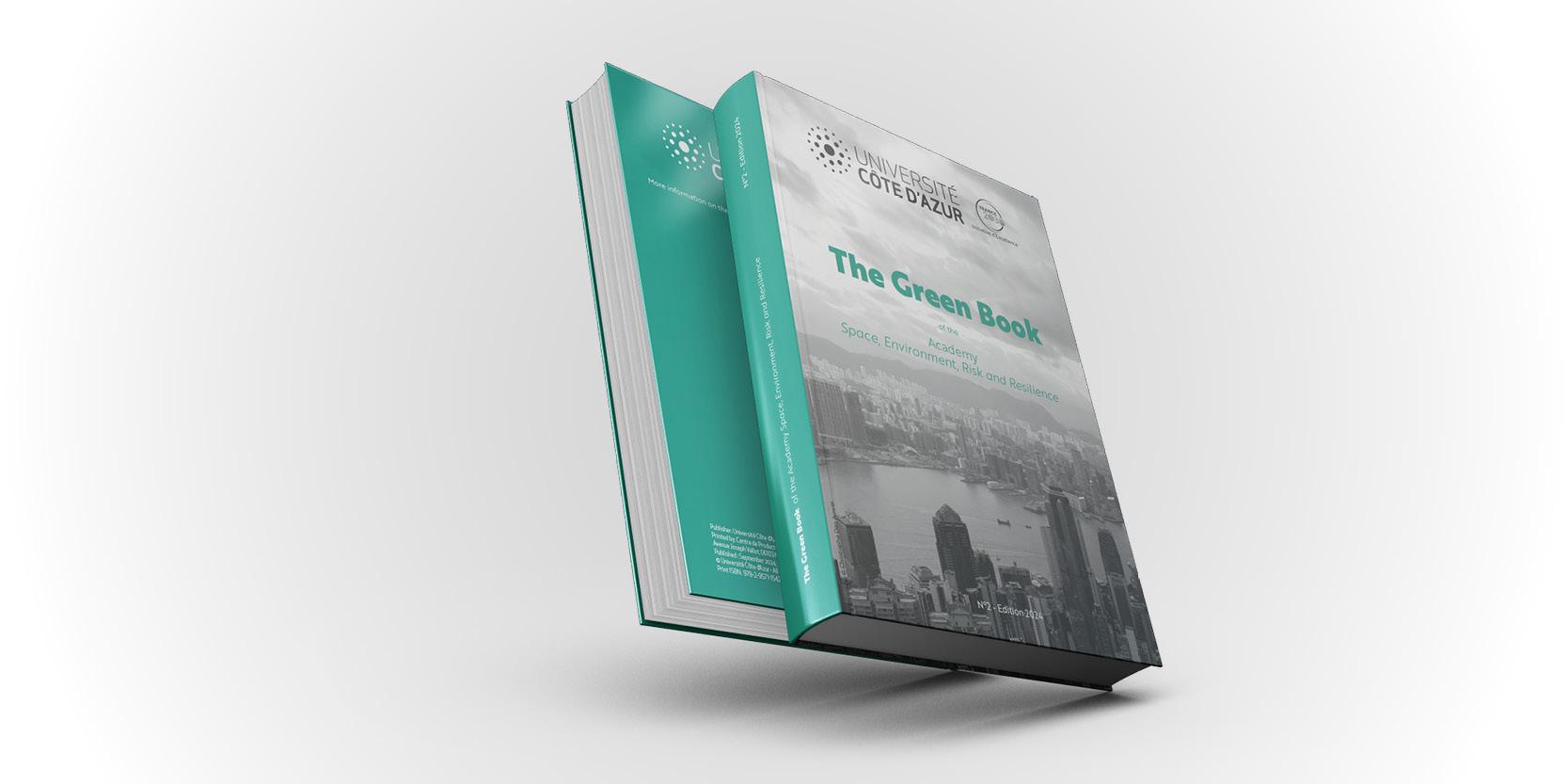
The Green Book serves as a comprehensive resource, highlighting the academy’s
contributions to understanding and addressing environmental challenges, natural and anthropogenic risks, and resilience strategies. It underscores the academy’s role in integrating scientific research with societal needs, promoting sustainable development, and enhancing resilience in the face of global challenges.
The full Green Book is available online, providing detailed insights into each project, its objectives, outcomes, and future directions. This publication not only celebrates the achievements of the past four years but also sets the stage for continued innovation and collaboration in the years to come.
Live from COP: our faculty members break down what’s really happening inside the Conference!
During COP29 in Baku in November 2024, members of the Université Côte d’Azur delegation produced a series of on-site videos aimed at decoding the COP process . These short videos explained what the COP is, how international negotiations work, and the key issues at COP29 in particular, while also highlighting why and how Université Côte d’Azur has been participating in COPs over the past several years.
Through this initiative, the delegation sought to make the complex climate negotiation process more accessible and transparent for students, researchers, and the wider public, demonstrating the university’s commitment to climate action, education, and global engagement.
Université Côte d’Azur partners with the IPCC, WMO and Cortes Solari for Climate Action!
As an observer organization to the UNFCCC since 2021, Université Côte d’Azur is committed to supporting member states in decision-making processes by contributing scientific expertise and fostering global transformation through education, research, and innovation. The university aims to be a proactive actor in addressing climate change.
At COP29 in Baku (November 2024), Université Côte d’Azur joined forces again with the MERI Foundation, the World Meteorological Organization (WMO), and the Intergovernmental Panel on Climate Change (IPCC) to co-host the Science for Climate Action Pavilion in the Blue Zone. This collaboration underscores the university’s commitment to integrating scientific expertise into climate policy discussions, aligning with its science diplomacy strategy.
The pavilion featured many scientific panels and events, focusing on topics such as:
• Ocean Decade Achievement
• Innovation, Digitalization and Climate Change, the space to conquer
• Advancing Coastal Cities Resilience
Enhancing and enabling climate solutions with higher education to the UNFCCC
As a member of the U7+ Alliance, Université Côte d’Azur participated in the official UNFCCC side event at COP29, titled Enhancing and enabling climate solutions with higher education . These official side events provide a unique platform to highlight specific topics under the auspices of the United Nations, offering them particular visibility and international attention.
At this event, Université Côte d’Azur was joined by Second Nature, École Polytechnique, National Institute of Advanced Studies, Tecnológico de Monterrey, and the University of Edinburgh, showcasing the collective expertise of leading universities. The gathering emphasized the pivotal role of higher education institutions as key actors in addressing climate change, demonstrating how research, education, and innovation can directly contribute to global climate solutions.
From local to global: Université Côte d’Azur organizes the second edition of its Mirror COP!
As an observer organization to the UNFCCC since 2021, Université Côte d’Azur aims to be a proactive actor in addressing climate change at the international, national and local level, as part of its events “En route pour la COP Climat”.
To ensure the academic voice is heard among policymakers, Université Côte d’Azur actively participates in COPs through a dedicated delegation. For COP29, a team of five representatives engaged in multiple official UNFCCC events, contributing insights, research findings, and expertise to the international climate dialogue.
At the same time, the university brings COP-related activities onto its campuses, creating a mirrored dynamic that connects global negotiations to local action, called “Mirror COP”
For 2 months before, during and after COP29, the university has hosted awareness events, workshops, and roundtables on environmental issues. The program of
activities was inspired by COP29, involving students, staff, and researchers across all campuses.
Through this approach, Université Côte d’Azur links its scientific diplomacy strategy with grassroots engagement, ensuring that knowledge flows both from the COP to the campuses—through educational videos, debriefings, and expert insights—and from the campuses to the COP, through participatory events, research presentations, and community-driven initiatives. This dual approach strengthens the University’s role as a bridge between science, policy, and society in the fight against climate change.
During COP29, Université Côte d’Azur participated in the annual meeting of the Network of Networks of Universities for Climate Change, held with the COP29 Presidency. Representing U7+, where the university serves as Secretary General, Université Côte d’Azur contributed to discussions on strengthening the collective voice of higher education in climate action.
The Network of Networks (NoN) is a coalition of Higher Education networks and international organizations co-convened by Cambridge and the University of Toronto with the purpose of harnessing the increasing activity in this space to facilitate radical collaboration inside and beyond the Higher Education and research sector. The network brings together dozens of university networks, representing thousands of universities worldwide, with the aim of coordinating university engagement, harmonizing strategies, and amplifying the influence of researchers and institutions in COP negotiations and the global fight against climate change.
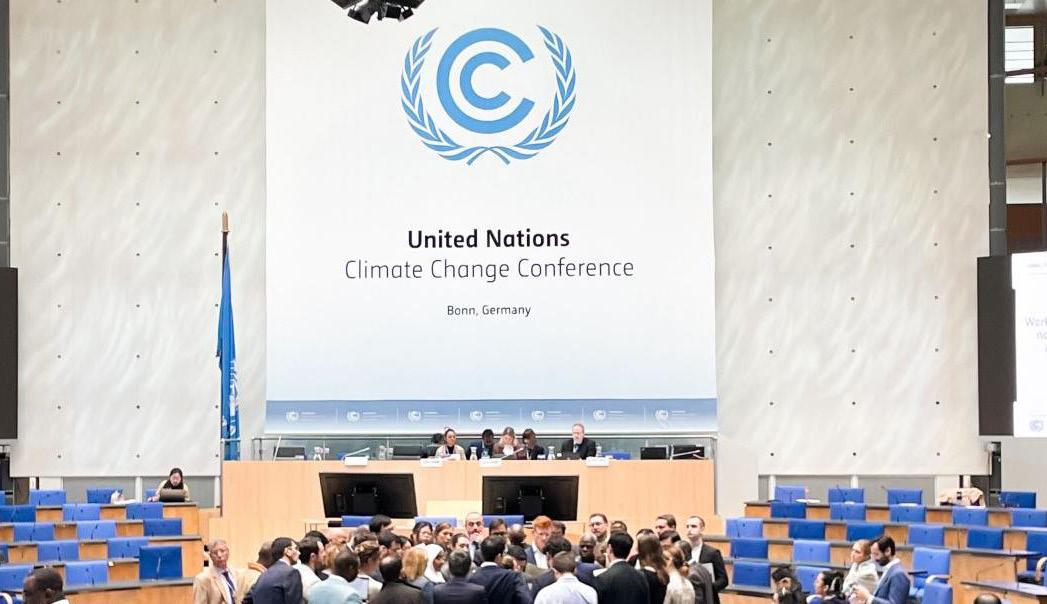
From June 3 to 13, 2024, Université Côte d’Azur participated as an observer organization at the 60th session of the UNFCCC Subsidiary Bodies (SB60) in Bonn Germany. This session focused on advancing the outcomes of COP28 and preparing for COP29 in Baku, addressing critical issues such as climate adaptation, mitigation, transparency, and finance.
The university delegation contributed scientific expertise to support member states in their
decision-making, highlighting the role of research and innovation in climate action. By engaging in technical discussions, panel sessions, and networking with international stakeholders, Université Côte d’Azur reinforced its position as a proactive actor in global climate diplomacy. This participation is part of the university’s broader strategy to connect academic research with policy, ensuring that universities and researchers play a central role in shaping climate solutions worldwide.
Researchers and governance representatives contributed to the Nice Climate Summit
Université Côte d’Azur’s scientific diplomacy strategy is highlighted across a wide range of initiatives and events. During the Nice Climate Summit 2024 , held on September 26 and 27 at the Palais de la Méditerranée, Université Côte d’Azur showcased its commitment to climate action by participating as a key contributor. The summit, organized by the Métropole Nice Côte d’Azur, the City of Nice, and La Tribune, brought together leading scientific experts, political figures, and economic stakeholders to discuss pressing climate issues.

As part of its engagement, the University contributed to discussions on ocean conservation, aligning with the summit’s theme of «Protecting the Ocean, Safeguarding Humanity.» This participation underscores Université Côte d’Azur’s ongoing efforts to integrate scientific research with policy-making, fostering a collaborative approach to addressing global environmental challenges.
A researcher of Université Côte d’Azur presented the climate recommendations of the Local High Council to the Nice Côte d’Azur Metropolitan Council.
On November 7, 2024, Damienne Provitolo, a researcher at Université Côte d’Azur and President of the Local High Council for Climate and Biodiversity, presented the Council’s climate and biodiversity recommendations to the Nice Côte d’Azur Metropolitan Council.
The Local High Council for Climate and Biodiversity of the Métropole Nice Côte d’Azur is an independent expert body created in December 2022 to guide local
public policies on climate change and biodiversity. Composed of 17 specialists (many of whom are affiliated with Université Côte d’Azur, the region’s leading institution for multidisciplinary research) from diverse fields — including environment, agriculture, energy, health, and urban planning — the Council provides scientific insight to inform metropolitan strategies and actions.
The Local High Council is a key component of Université Côte d’Azur’s science diplomacy strategy, bridging academic research and regional decision-making. and reinforces the university’s role as a trusted scientific advisor in addressing climate challenges.
On September 24, 2025, Université Côte d’Azur offered an online ecological transition training for all undergraduate students, delivered on the Moodle platform as an interactive escape game. This program formed part of the mandatory transversal competencies for bachelor’s students and is designed to raise awareness of climate risks while fostering student responsibility and engagement in the ecological transition.
The training covered four main themes:
• Climate change and adaptation
• Planetary boundaries
• Biodiversity
• Circular economy
Beyond theoretical lessons, students engaged in discipline-specific projects in partnership with local associations and municipalities across the AlpesMaritimes region, providing hands-on experience in sustainable practices.
The program has been recognized as one of the most advanced pedagogical models in France for integrating climate and ecological issues into higher education. During the ETES 2025 symposium (Teaching Ecological and Social Transitions in Higher Education), organized by the Labos 1point5 initiative, program leaders presented their approach, aligned with the Jouzel-Abadie Report recommendations. This event brought together researchers, educators, students, and civil society actors to collaboratively address the key challenges of ecological and social transition.
The Observatory on Ecological and Citizen Transition continues to support project cobuilt with NGOs
In 2024, the CTR project in the Roya Valley advanced research on agricultural terraces, focusing on developing practical solutions to climate change and natural risk management in a region prone to floods and landslides.
A first intern validated and expanded the project’s methodology on selected test zones and applied it across the Roya Valley. Terraces were analyzed based on accessibility, morphology, vegetation, and land status, in close collaboration with local residents and public partners. This spatial data helps identify vulnerabilities and inform climate-resilient land management strategies.
The other intern conducted a contingent valuation study to estimate the terraces’ multi-dimensional value, including heritage, productivity, and environmental contributions. Surveying 140 local respondents, the study highlights the social and economic importance of terraces and their role in sustainable adaptation to climate risks.
Overall, the CTR project is highly valuable in integrating ecological, social, and economic perspectives, generating knowledge and tools that strengthen resilience and promote sustainability.
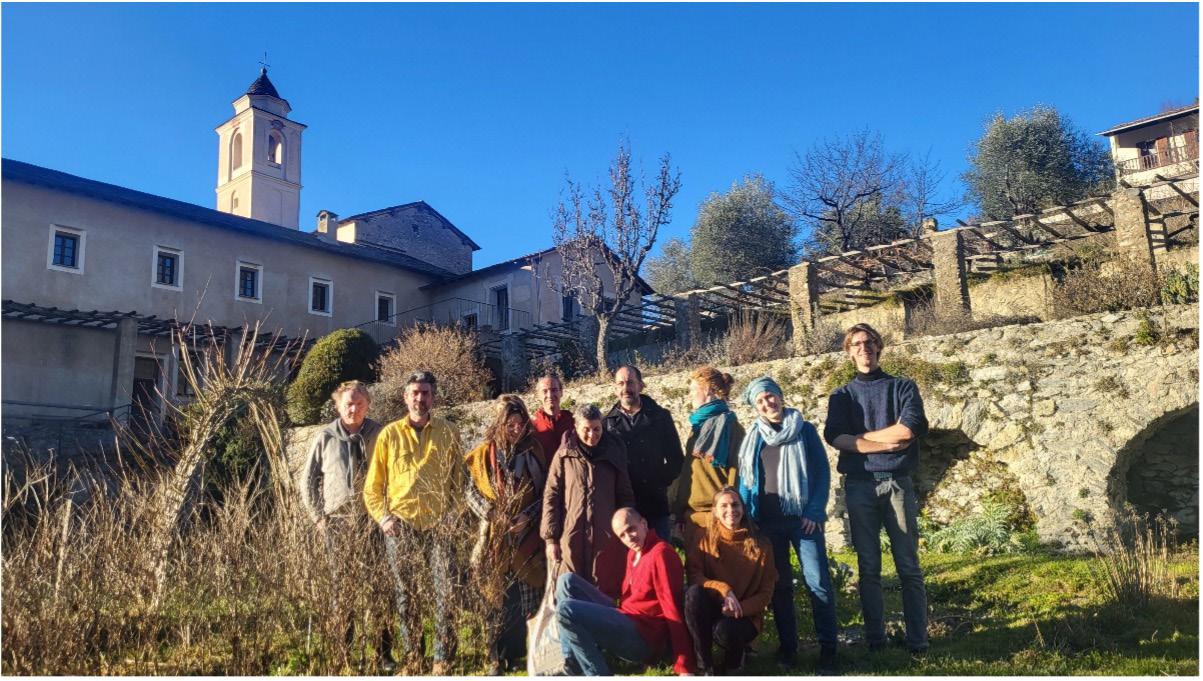
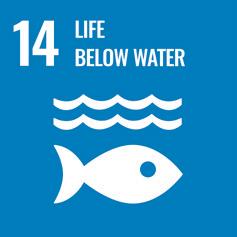
The Academy 3 “Space, Environment, Risks and Resilience” supports research projects tackling threats on oceans and coastal areas!
The Academy continues to advance scientific knowledge and innovative solutions to protect marine and coastal ecosystems. Through its research program “Threats on Oceans and Coastal Areas” , the Academy supports interdisciplinary projects addressing environmental challenges linked to climate change, pollution, and biodiversity loss.
In 2024, several groundbreaking projects were funded and made significant progress in understanding and mitigating threats to marine environments:
• PROMAB focuses on the interactions between pollutants and microbial biofilms in marine environments. The team deepened its analysis of microbial communities’ ability to trap and transform contaminants, offering new insights into ocean self-purification processes.
• CORAiL explores coral resilience and adaptation mechanisms in the face of warming and acidifying oceans. Funded since 2024, the current research phase integrated field observations in the Mediterranean with molecular analyses to better predict coral response to environmental stress.
• BENTOX investigates how toxic contaminants accumulate and move through benthic ecosystems. This year, researchers developed innovative biomarkers to assess toxicity levels in sediment-dwelling species, contributing to risk assessment for coastal pollution.
• AC-DC examines acoustic communication and disturbance in coastal environments. The project aims to assess how anthropogenic noise affects marine life behavior, paving the way for improved guidelines on noise regulation in marine protected areas.
• MARE bridges environmental sciences and social studies to explore community resilience along vulnerable shorelines. This interdisciplinary project expanded in 2024 to include participatory workshops with local populations, integrating citizen science into risk management strategies.
• EDU-DELO aims to strengthen education and awareness around sustainable resource management. The project plans to create educational material about hydrology, an observatory, and a hydrogeological database. The Edu-Delo educational component and the interface providing easy access to research and educational data on sustainable water management was implemented in 2024-2025.
The edition 2024 of the Science Fair fully dedicated to the Ocean!
From October 4 to 14, 2024, the department of Alpes-Maritimes hosted the 33rd edition of the Science Fair, coordinated by Université Côte d’Azur and themed “Ocean of Knowledge”.
This year’s edition invited the public and school pupils to dive into the mysteries and riches of the oceans, and explore their vital role for our planet.
With dozens of project leaders, research laboratories (including those of Université Côte d’Azur), and public partners participating, the 2024 fair brought science to life through exhibitions, workshops, immersive experiences and field visits—all centered on the marine environment, coastal ecosystems and their preservation.
By placing the ocean at the heart of the discussions, the 2024 edition reinforced the importance of marine knowledge, cross-disciplinary inquiry and public engagement in addressing global environmental challenges, in anticipation of the United Nations Ocean Conference in 2025.
Université Côte d’Azur participates in the Culture and Ecological Transition Forum for a Sustainable Mediterranean
On November 28-29, 2024, the City of Nice hosted the first edition of the “Culture and Ecological Transition for a Sustainable Mediterranean” Forum, organized under the project “Territoires Cultivés” and coordinated by the Agency for Sustainable Mediterranean Cities and Territories (AVITEM).
Université Côte d’Azur took part in this major gathering of cultural and environmental stakeholders from around the Mediterranean, contributing to discussions on how creative practice, heritage, and territorial development can drive ecological and social transformation. The Forum explored themes such as the elevation of sea levels, cultural - ecological resilience, and how cities and territories can become more sustainable through cultural innovation.
In September 2024, MSc MARRES students at Université Côte d’Azur participated in a week-long training on marine conservation effectiveness, organized with BlueSeeds . The program combined theory, group work, and role-playing to teach students how to plan activities, secure funding, engage stakeholders, and develop sustainable, innovative solutions for marine protected areas. Experts from NGOs, philanthropy, and MPA management provided in-person and virtual insights, helping students understand why some conservation initiatives fail when financial viability or local community involvement is overlooked. This training equips students to design effective, sustainable, and communityfocused marine conservation projects.
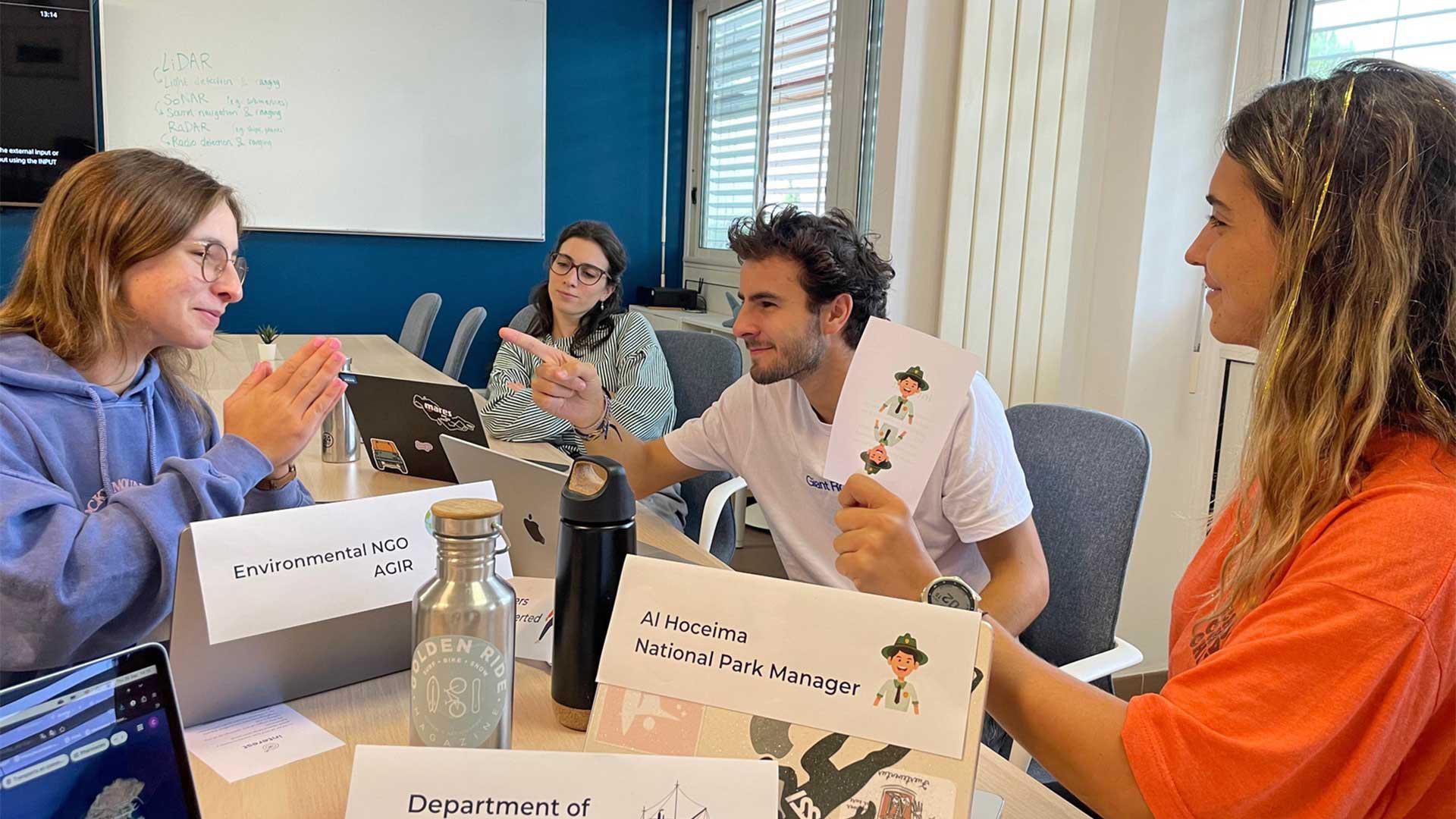
Université Côte d’Azur actively prepares the next UNOC in Nice with the Ocean and Climate Platform
In 2024, Université Côte d’Azur actively contributed to the preparation of the 2025 United Nations Ocean Conference (UNOC) in Nice through its collaboration with the Ocean and Climate Platform (OCP) , of which it is one of 116 member institutions. As the main university of the host city, with a large network of partners and its laboratories and researchers, it played a central role in shaping the scientific, educational, and outreach agenda throughout the year.
Among the highlights, the University coordinated the “An Ocean of Possibilities” global consultation initiative, organized with CNRS and Friends of Ocean Action, which engaged civil society actors, policymakers, and scientists in envisioning a sustainable and regenerative ocean future beyond 2030.
A particular focus in 2024 was on fisheries and aquaculture under climate change, with the event “Fisheries and Aquaculture in the Face of Climate Change: Challenges and Perspectives” organized in collaboration with the Ocean and Climate Platform. This event brought together researchers, industry stakeholders, and policymakers to discuss the impacts of climate change on marine resources, share innovative solutions, and strengthen the link between scientific knowledge and sustainable management practices.
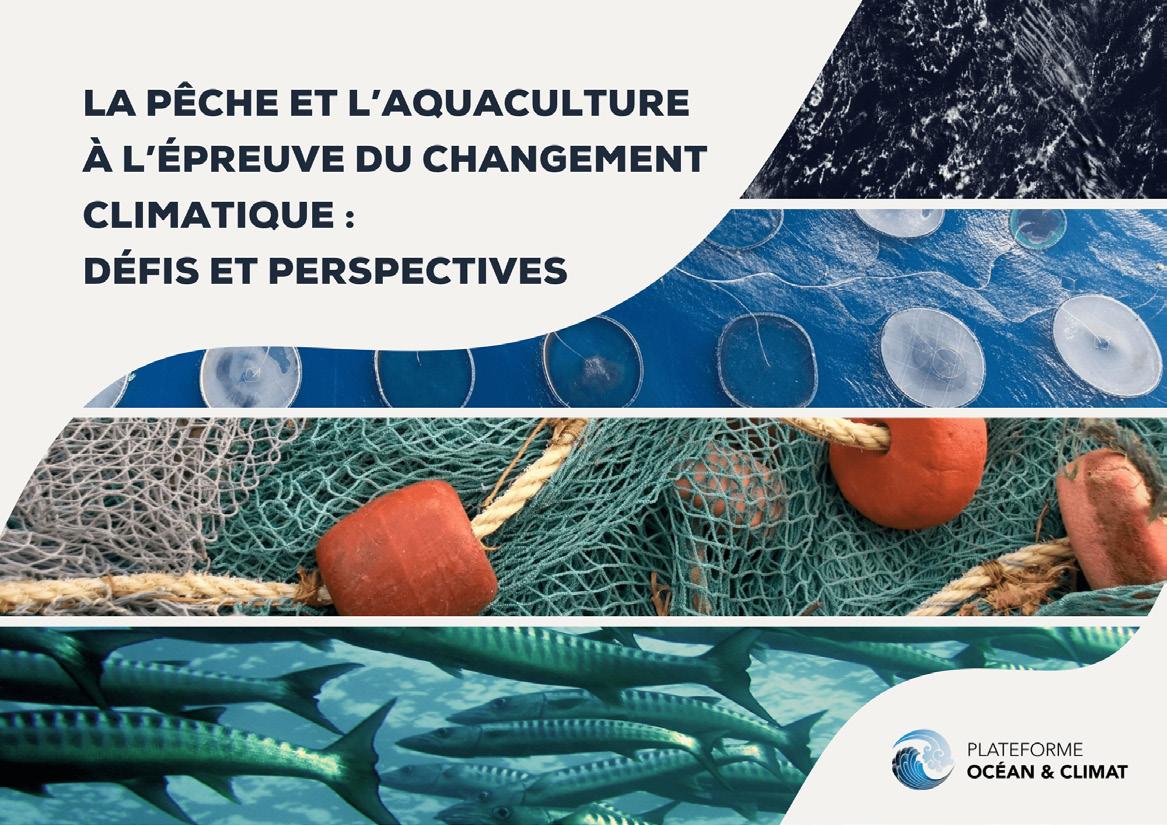
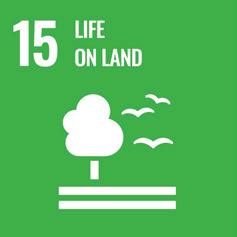
The Observatory on Ecological and Citizen Transition committed to Protect, restore and promote sustainable use of terrestrial ecosystems through participatory research projects
Université Côte d’Azur’s Observatory on Ecological and Citizen Transition (OTECCA) is strongly committed to protecting, restoring, and promoting the sustainable use of terrestrial ecosystems, in alignment with SDG 15. Through participatory research projects, OTECCA brings together scientists, citizens, and local actors to co-develop sustainable solutions for the management of natural resources.
Among its key initiatives, a study of agro-food transformation workshops in the Alpes-Maritimes region was led in 2024 to identify pathways toward sustainability in local food systems, highlighting how small-scale production and circular practices can reduce waste and support local economies.
The Life Cycle Assessment of Territorial Food Plans (ACV-PAT) project evaluates the environmental impact of local food strategies to help decision-makers adopt more sustainable and evidence-based approaches.
The Theatre, Deep Ecology, and Collective Intelligence” (TTEPIC) project uses performing arts as a creative tool for public engagement and awareness, fostering reflection and dialogue on ecological transformation. It was in this context that the TTEPIC project webinar on “Performing Arts and Ecology: Working with Affects” was held on March 8, 2024.
Four biodiversity inventories, referred to as the “Four Seasons” program.
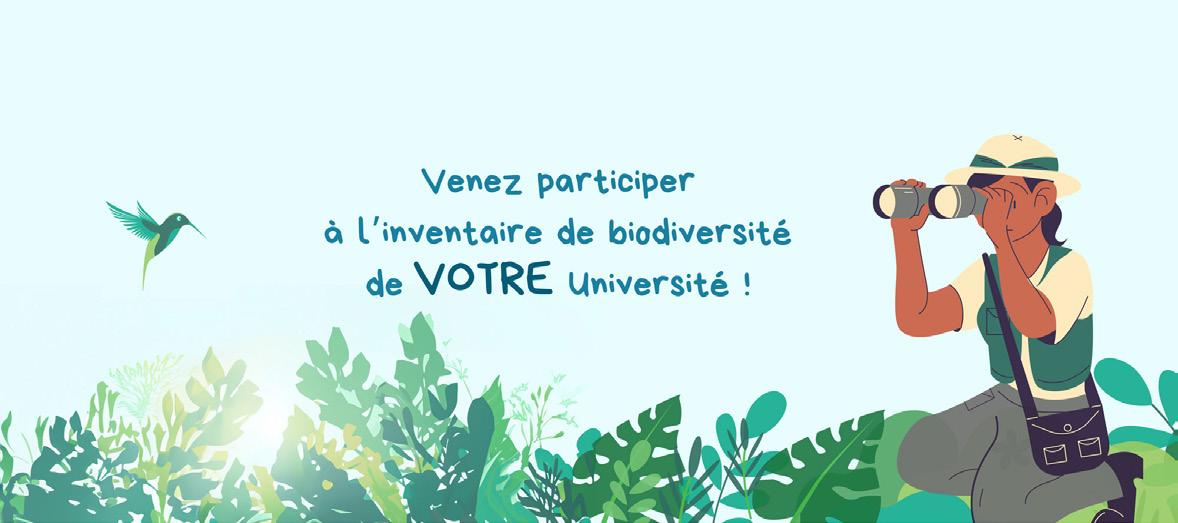
From December 2023 to February 10, 2024, Université Côte d’Azur launched its first biodiversity inventory under the “Four Seasons” program — a yearlong initiative designed to explore and preserve the natural richness of its campuses.
Led by the Sustainable Campus Development Department (3DS) in collaboration with the IUT, the Sophiatech and Polytech campuses, Trotabas, and INSPE, this project aims to deepen our understanding of the ecosystems that surround us daily but often go unnoticed.
Already committed to ecological transition through renewable energy, carbon footprint assessments, and waste management, the university is now extending its sustainability efforts to biodiversity. The first inventory, carried out during the winter months, focuses on common bird species inhabiting the campuses. Students and staff are invited to take part in this participatory project, contributing valuable observations to both the university’s database and the national Vigie Nature program.
Throughout 2024, four inventories — one per season — will be conducted to provide a comprehensive view of local biodiversity and identify key conservation priorities. The results will guide future actions to protect and enhance the university’s natural heritage.
The Please project: Short-term rental platforms: impacts on real estate markets and urban space – The case of the PACA region
The PLEASE Project explores how short-term rental platforms, such as Airbnb, are transforming housing markets and urban spaces in France’s Provence–Alpes–Côte d’Azur (PACA) region.
By investigating the region’s rental market dynamics, the project aims to:
• assess how short-term rental platforms influence property values, housing availability and long-term rental markets;
• explore shifts in urban space usage, neighborhood character and resident communities prompted by changing occupancy patterns;
• provide localized insights and policy recommendations for actors (municipalities, property owners, residents) navigating the transformation of urban housing ecosystems.
Its ultimate goal is to provide policymakers and communities with tools to balance tourism-driven rentals with housing sustainability and social cohesion.
Université Côte d’Azur has formally adopted the Biodiversity Charter for Higher Education Institutions , a voluntary commitment framework developed by France Universités for higher-education institutions to integrate biodiversity considerations into their governance, management and mission.
By signing this charter, the University pledges to:
• align its institutional policies (education, research, campus governance) with national biodiversity objectives;
• allocate dedicated human and financial resources to biodiversity initiatives;
• manage campus sites and green spaces in a sustainable way, preserving local ecological assets;
• monitor and publicly report on biodiversity-related actions and outcomes;
• raise awareness among students, staff and visitors about the biodiversity of the campus environment and engage them in preservation efforts.
The charter provides a structured framework—composed of strategic axes, operational tools and guidance—to translate this pledge into concrete actions on campus and in the institution’s broader missions.
The Bug to School project explores how insect populations recolonize revegetated schoolyards across the Nice Côte d’Azur Metropolis. As part of a wider greening initiative to reduce urban heat and support biodiversity, it studies how these new green spaces can restore diverse arthropod communities and which design choices best promote ecological balance.
Combining scientific monitoring and participatory learning, the project involves local schools in data collection and observation. This collaborative approach connects education, science, and environmental action—turning schoolyards into living spaces for both learning and biodiversity.
On November 12 2024, the 7th edition of JET Nice convened a multidisciplinary research community specializing in tourism and event studies. Hosted by Université Côte d’Azur, through its research axis at the MSHS Sud-Est and the Institut du Tourisme Côte d’Azur (ITCA), the day-long conference tackled the theme of Responsible Luxury Tourism.
Scholars and industry experts from across laboratories and international institutions presented academic papers, engaged in a plenary session on tourismphobia and luxury, and participated in a roundtable addressing sustainability in high-end tourism. Students in the Master’s in Tourism Management also contributed reflections and insights.
By bridging theory and practice, JET Nice aimed to deepen our understanding of how luxury tourism practices can align with ecological responsibility, urban impacts, and evolving global markets. The event provided a platform for exchange, critical dialogue, and actionable strategies for actors across the tourism ecosystem.
Université Côte d’Azur takes care of its green spaces, a simple yet efficient way to contribute to the well-being of its community

In 2024, Université Côte d’Azur enhanced the management and development of its campus green areas to support sustainability, biodiversity, and the well being of students and staff. The year saw improvements in vegetation diversity, the creation of relaxing and inclusive outdoor areas, and the integration of spaces designed to combine ecological quality with human comfort.
These efforts ensured that the university’s green spaces were not only visually appealing but also functional, offering areas for study, rest, social interaction, and connection with nature.
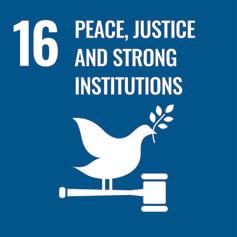
The UNESCO Chair Peace and Development through Law organized an exceptional conference dedicated to Combating Conflict-Related Sexual Violence: Normative Frameworks and Operational Action
In January 2024, the UNESCO Chair Peace and Development through Law at Université Côte d’Azur organized an international symposium in Nice on combating conflict-related sexual violence . The event brought together around thirty experts, practitioners, and policymakers to strengthen dialogue between research, law, and operational action.
Over two days, participants discussed key issues across five thematic panels, including international and national legal frameworks, access to justice and reparations, prevention and community responses, and multi-sectoral policy approaches.
Aligned with SDG 16 – Peace, Justice and Strong Institutions, the symposium contributed to advancing legal and institutional responses to conflict-related sexual violence, promoting human rights, and supporting sustainable peace through justice and accountability.
The discussions and recommendations from this event are set to inform future initiatives aimed at reinforcing the protection of victims and preventing such violence in conflict settings.
A highly productive year for the Institute for Peace and Development and the LADIE
Following the symposium on conflict-related sexual violence held in January 2024 (see above), the Institute for Peace and Development and the LADIE continued an exceptionally active year marked by significant scientific and institutional engagement
Throughout 2024, their work addressed major global issues at the intersection of international law, peace, and sustainability. A key highlight was the international conference “The Role of International Courts in Climate Protection” (October 3–4, 2024), which examined how judicial institutions can strengthen global environmental governance and contribute to the fight against climate change.
The year also featured participation in several international academic forums exploring pressing questions of digital security, hybrid warfare, nuclear deterrence, and space governance with partners of Université Côte d’Azur such as Université Laval, Université Libre de Bruxelles and other French universities.
Affiliated to the Institute for Peace and Development and LADIE, the UNESCO Chair “Peace and Development through Law” (P2D) also remained highly active in 2024. Numerous open conferences were organized on site and online with French and international partners, featuring contributions from distinguished international scholars. These events explored key topics such as climate justice, war and ecology, European integration, and migration governance.
The Summer School 2024 of the “Étude des Mouvements des Ordres Juridiques International et Européen” (EMOJIE) network, hosted by the Institute for Peace and Development (IdPD) and LADIE at Université Côte d’Azur from September 3–6, 2024, explored the strategic uses of international and European law.
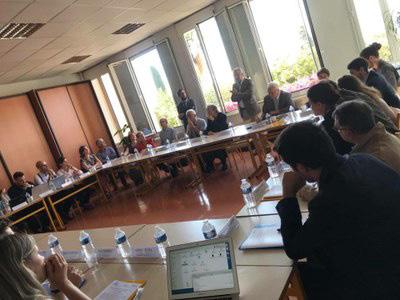
With participation from more than twenty universities across France, Europe and Canada, the event brought together advanced doctoral students and earlycareer researchers to engage with the ways legal regimes and instruments are mobilised in global power dynamics— covering topics such as environmental law, security, hybrid warfare, and emerging technologies.
The Summer School reinforced the network’s mission to train legal scholars equipped to navigate and shape international governance, thereby contributing to the objectives of SDG 16 – Peace, Justice and Strong Institutions.
Closing chapter for the Jean Monnet Chair on the European Union and Crisis Management
The Jean Monnet Chair on the European Union and Crisis Management at Université Côte d’Azur concluded its mandate at the end of 2023. The program had focused on analysing how the European Union responds to diverse crises — legal, institutional, humanitarian, financial, and security-related — both within and outside its borders.
Over the course of its three-year tenure, the Chair delivered an ambitious series of teaching, research and public outreach activities, including monthly lectures, seminars and a legal clinic devoted to EU crisis governance.
Its legacy, however, continued throughout 2024, as research and academic events at the Institute for Peace and Development (IdPD) and LADIE carried forward the conversation on the European Union’s evolving challenges. Workshops and conferences throughout the year addressed topics such as the role of European institutions, the Union’s external action, and the resilience of its democratic and legal frameworks.
A major milestone for Université Côte d’Azur: the election of the Scientific and Pedagogical Councils (CoSP) of its eight Graduate Schools
In 2024, like every 4 years, Université Côte d’Azur reached a significant milestone with the election of the Scientific and Pedagogical Councils (CoSP) for its eight Graduate Schools (Écoles Universitaires de Recherche, EUR). These Graduate Schools are central to the university’s strategy to integrate high-level research and advanced training, fostering innovation, international collaboration, and interdisciplinary excellence.
The CoSPs serve as key governance bodies within each Graduate School. Composed of professors, researchers, administrative staff, and student representatives, the Councils are responsible for shaping educational programs, aligning them with ongoing research activities, and promoting pedagogical innovation. They also contribute to the development of international partnerships, industrial collaborations, and strategic planning in areas such as human resources and budget management.
The elections marked the beginning of a new mandate for these Councils, reinforcing collaborative governance and ensuring that the Graduate Schools continue to provide a dynamic environment for research, training, and knowledge transfer. By participating in these elections, members of the university community actively contributed to the direction and priorities of their respective EUR, strengthening Université Côte d’Azur’s role as a leading research and education institution.
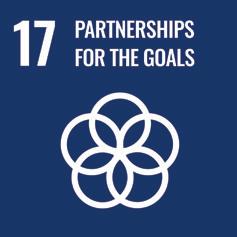
First results following the implementation of policy to support international collaboration capturing data related to SDGs.
Following the adoption of a Policy to collaborate internationally to capture data relating to SDGs in 2023, Université Côte d’Azur has started to carry out specific actions in international collaboration specific to data sharing.
One main output would be the publication of the RADAR report highlighted during the webinar on radar new trends report (on May 29, 2024). Relying on extensive international data collection, this report provides a key a list of recommendations in order to strengthen foresight capabilities in today’s world of accelerating technological, socioeconomic, and geopolitical change in connection with SDGs.
RADAR brings together eight European universities from France, Spain, Slovakia, Germany, Montenegro, Finland, Italy, and Austria in the framework of the Ulysseus European Alliance. RADAR serves as a platform for data sharing and monitoring trends related to the SDGs, allowing our university and its partners to adapt to social and economic changes.
Université Côte d’Azur committed to cross sectoral dialogue about SDGs with the initiative «On the road to COP”

As more specifically presented in SDG13, Université Côte d’Azur has organized the second edition of the initiative “On the road to COP” in 2024 . Out of the 56 events organized throughout October, November and December 2024, over 95% were cross sectoral involving government, NGO, international partners and international organizations. These events took place during the COP 29 in Baku, Azerbaijan, and in Nice and its region. They gathered 1300 people onsite and 2M people online. This is made possible also by partnering with cross sectoral institutions such as the philanthropic foundation Cortes Solari, the World Meteorological Organization (WMO) and the Intergovernemental Panel on Climate Change (IPCC).
Another example of partnerships with public institutions (this time local institutions): the joint cycle of conferences organized by the Science & Society Chair in collaboration with the City of Nice and the Metropolis Nice Côte d’Azur These round - tables bring together researchers, municipal officials, regional stakeholders and invited experts to engage the local community on issues ranging from flood risk management to coastal ecology and aging populations.
On June 10, 2024 took place the round table entitled “The SKA (Square Kilometre Array) Observatory: sharing the sky and the stars”, one of the world’s largest scientific collaborations. Designed to explore the origins of the universe and the emergence of life, SKA also carries a strong societal dimension. The discussion focused on how scientists have engaged with Indigenous communities in South Africa and Australia — working collaboratively to ensure their inclusion and the participation of local businesses throughout the project.
Relationships with regional NGOs and government for SDG policy
A dedicated observatory acting as a Science Shop supporting local governments and NGOs
As a dedicated observatory supporting local governments and NGOs, OTECCA continued to support throughout 2024 the development of several projects cobuilt with local NGOs and government, thus addressing specific and targeted challenges connected to SDGs :
• the Project on Life Cycle Analysis of Territorial Food Initiatives in the AlpesMaritimes (ACV-PAT, already presented in the SDG 2 part), built with the support of the ADEME, the Environment and Energy Management French Agency for Ecological Transition.
• the MOBILISCAPE project (presented in SDG 11) on sustainable mobility illustrate as well Université Côte d’Azur’s engagement with local government and NGOs, in this case, the Citizen Action Association for a Better Environment ( ACME 06 ) and the Pays des Paillons Community of Municipalities ( CCPP ).
community shares their expertise and their time
Many Université Côte d’Azur researchers contribute to diverse scientific boards, including those carried out by local authorities. As an example, again already mentioned previously in the SDG13 chapter, the President of the Local High Council for Climate and Biodiversity is a researcher from our University, as well as many members of the council. Together, they participate as citizens and as experts to lead local decision-makers in the good direction.
Joint projects supporting relationships with regional NGOs and government SDG policy
As well as the Mobiliscape project, the Chair on “Territories & Autonomous Shuttles” , presented in SDG 11, is a perfect illustration as well of joint initiatives having a direct and measurable impact on local government policies. By bringing together researchers, public authorities, citizens and private actors, the program supports experimental deployments—such as autonomous shuttle services in both urban and rural settings—that influence mobility planning, infrastructure decisions and innovation strategies.
Université Côte d’Azur develops and strengthens on a daily basis many collaborations for SDGs especially through our research projects such as:
• ACROPICS Already presented in SDG 3, the ACROPICS project embodies an international co-innovation effort dedicated to the agroecological protection of crops, bringing together 15 organizations — including academic institutions, research centers, and agricultural cooperatives — from France, Spain, Belgium, Portugal, the Netherlands, Romania, Argentina, Senegal, Cambodia, China, Chile, and India.
The ACROPICS contributors develop 12 sustainable agriculture systems (SAS), each co-designed with local stakeholders, including farmers, cooperatives, and regional institutions, forming a powerful and highly collaborative network of expertise.

• The Franco-Costa Rican Chair on SocioEnvironmental Challenges : Launched in partnership between Université Côte d’Azur and the University of Costa Rica, the FrancoCosta Rican Chair on Socio-Environmental Challenges embodies a long-term collaborative commitment to interdisciplinary research and education. The Chair promotes exchanges of researchers, students, and administrative staff between both institutions, addressing global issues that lie at the intersection of society and the environment.
• INBUILT, a collaborative project for sustainable building : The INBUILT project, launched in December 2023, by Université Côte d’Azur, aims to revolutionize sustainable construction practices across Europe. This Horizon Europe initiative is focused on significantly reducing the carbon footprint of buildings through the adoption of innovative materials and
systems. The project emphasizes a transition from traditional construction methods to more sustainable practices, addressing both new constructions and renovations to enhance industry productivity. With a budget of €7.3 million from Horizon Europe and a consortium of 19 partners (from France, Germany, Latvia, Spain, Belgium, Portugal, Luxembourg and the United Kingdom), INBUILT will continue until May 2027, focusing on human-centered innovation for a sustainable built environment.
Among the many ways the University organizes partnerships, the Engagement Center is a great example given its central role in fostering active civic participation and strengthening ties with local NGOs. By promoting collaboration with community organizations, the Center encourages students and staff to be involved and to contribute directly to the well-being of their communities.
Through training programs, workshops, and volunteer initiatives, the Engagement Center emphasizes the impact of individual action on collective outcomes, while equipping students with the knowledge, skills, and values necessary for responsible citizenship. This approach underlines the importance of partnerships and local engagement as key drivers of social impact and sustainable development, in line with SDG 17.
In the 2024–2025 academic year, 1,684 students successfully completed their civic engagement missions, demonstrating the university’s strong commitment to integrating societal responsibility into higher education and empowering the next generation to actively participate in shaping their communities. A large majority took place in local NGOs active in very different areas: social, environmental, historical, cultural, etc.
In July 2024, Université Côte d’Azur began its mandate as Secretariat General of the U7+ Alliance of World Universities the G7’s informal engagement group for universities.
The U7+ Alliance of World Universities is the first coalition of university presidents aimed at defining concrete actions universities can take to collectively address global challenges in coordination with government leaders in G7 countries and beyond.
Alliance members meet annually to establish a common agenda and identify key areas for coordinated action. Together, U7+ university presidents take stock of their universities’ unique civic and social responsibilities and pledge concrete action on behalf of their institutions to address the world’s most pressing challenges at local, regional and global levels.
As Secretariat of this alliance, Université Côte d’Azur actively contributes to strengthening global coordination between world Universities, expanding its partnerships, and amplifying its voice in international dialogues.
www.univ-cotedazur.fr